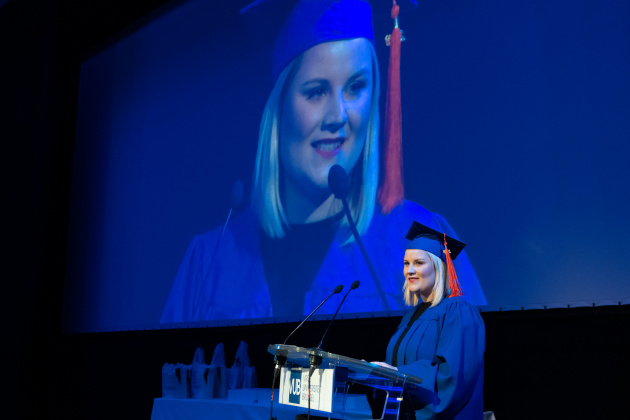MULTILINGUAL MASTER IN LINGUISTICS AND LITERARY STUDIES
Are you looking for a one-year Master’s programme in linguistics and literary studies during which you can specialise in one or two languages according to your Bachelor’s degree? Do you want to study in the multilingual capital of Europe with numerous institutions such as the European Union, NATO and several multinational companies? Join our Multilingual Master!
What?
In the Multilingual Master in Linguistics and Literary Studies, you can follow courses in up to nine different languages and you can specialise in one of the following subjects:
- Intermediality
- Linguistics
- Literary Studies
- Multilingualism and Foreign Language Acquisition
- Psycholinguistics and Neurolinguistics
- Multilingual Mediation and Communication
Want to learn more about the programme?
Book your online info session here!Why VUB?
Vrije Universiteit Brussel (VUB) offers high-quality English-taught programmes, supported by outstanding research. Being a student at VUB means learning in an atmosphere of tolerance and diversity, as well as growing into an independent and critical-thinking individual.
VUB is a dynamic and modern university with almost two centuries of history. We welcome 17,500 students, 23% of which are international students from more than 120 different countries.
Why multilingual master?
Linguistics and literary studies are among the most fascinating studies, especially in a city like Brussels where more languages are spoken than anywhere else in Flanders, Belgium or Europe. A Master’s student in linguistics and literary studies gets access to other languages and cultures, which opens up new horizons of understanding. Our multilingual Master's programme prepares students for a globalized labour market where multilingualism is increasingly becoming a necessity. The internationally oriented city of Brussels is the perfect location to personally experience the diverse aspects of multilingualism and multiculturalism.
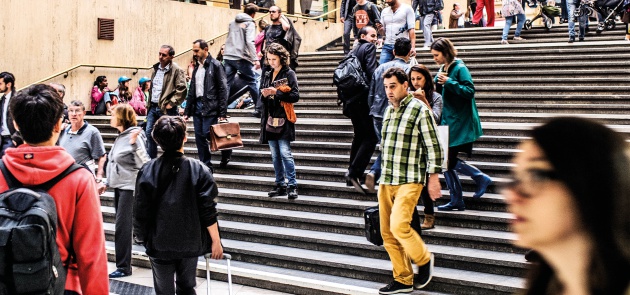
After graduation
A Master's degree in Linguistics and Literary Studies opens doors in many different branches and sectors. You will be able to work in the private sector or at (non-) governmental organisations. Students achieving excellent results can also consider one of our PhD programmes. Highly skilled professionals with an excellent command of various languages and a good understanding of multiple cultures are needed in national and international public institutions and companies. Brussels is the perfect environment to prepare you for such a job.
Not sure yet what your next step should be? VUB helps you with your first steps on the job market.
Want to know more about next academic year?
Check out the latest updatesFollow the Multilingual Master
On FacebookPhD?
IF YOU WANT TO CONTINUE YOUR ACADEMIC CAREER, YOU CAN APPLY FOR A PHD POSITION AT VRIJE UNIVERSITEIT BRUSSEL. ALL YOU NEED IS A SUPERVISOR, RESEARCH SUBJECT AND SUFFICIENT FUNDING. ARE YOU UP FOR THIS CHALLENGE?
More info
Faculty
Languages and HumanitiesAny questions?
Don’t hesitate to write us an email. We’d be happy to help you on your way!
Contact us
Educational Quality
Here at VUB we put great care and effort in the quality of our education. Transparency is key. Information on the educational quality of each programme is public, e.g. describing its strengths and actions.
Public info on the quality of the programme
6 Profiles, 9 Languages
Our master's degree offers six profiles - each profile featuring a specific set of courses - that allow you to specialise in different language-related domains.
Intermediality
This profile offers an academic approach to the intermedial and/or intertextual relationship between literature and other art forms, such as theatre, dance, opera, visual arts or film. Interactive courses give you the opportunity to gain in-depth insights into the dynamic interconnectedness of different genres.
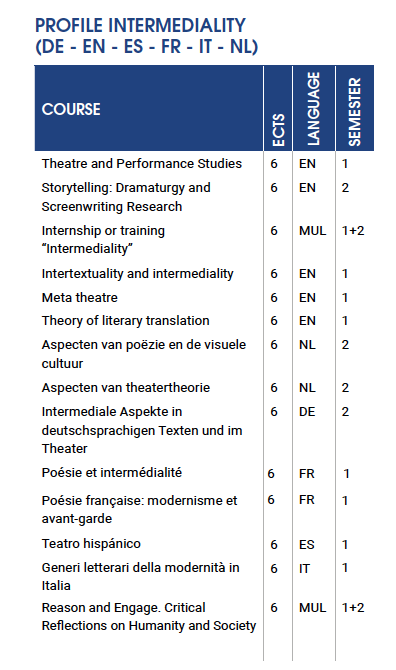
Linguistics
The Linguistics profile provides an exploration of language with courses in up to six languages. This profile covers a broad range of linguistics topics, such as theoretical linguistics, (historical) sociolinguistics and corpus linguistics.
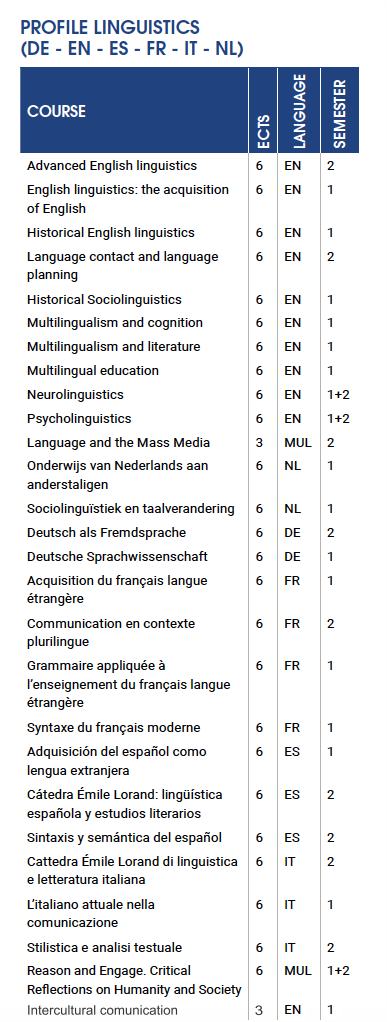
Literary Studies
In this profile you will explore current literary topics and fields, such as urban literature, postcolonial literature, the intermedial relationship between literature and other art forms, and aspects of literary translation.

Multilingual Mediation and Communication
This profile offers students a range of advanced academic and professionally-orientated courses linked to the broad remit of “multilingual mediation and communication”. As such, students will acquire the necessary knowledge and skills to critically reflect on the challenges pertaining to communication in an increasingly multilingual and intercultural world, as well as to practise their mediation skills (e.g. translating, interpreting) in order to facilitate this communication. Through a compulsory internship, students will gather gain hands-on professional experience.
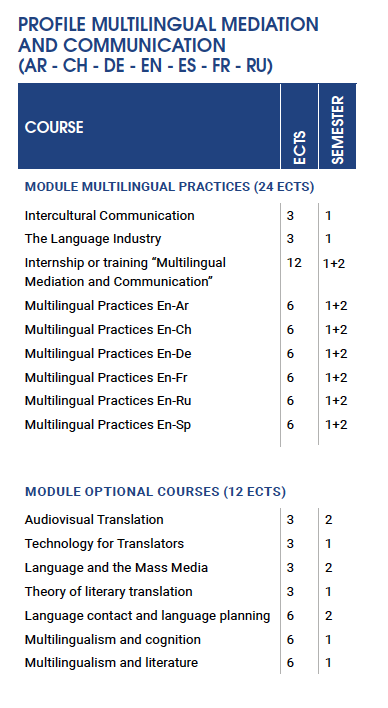
Multilingualism and Foreign Language Acquisition
This profile provides a profound exploration of multilingualism from both social and cognitive perspectives. It explores the role of instructed versus uninstructed foreign language learning. Students are given the opportunity to complete an internship, during which they put theory into practice.
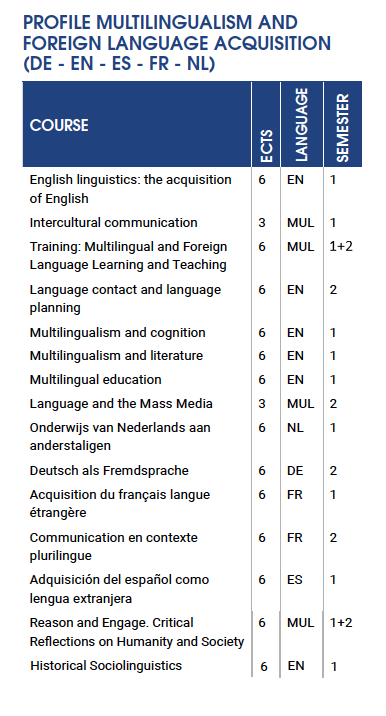
Psycholinguistics and Neurolinguistics
If you are fascinated by the neurological and psychological aspects of language, this profile is perfect for you. Language impairments caused by brain damage and the cognitive aspects of linguistics are only a few examples of topics you will examine by choosing this profile.
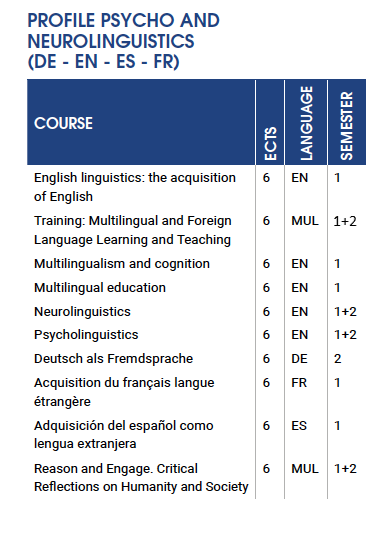
Meet our professors and learn about the profiles and languages
Take me to the MUMA youtube channelProgramme
Our Master’s programme offers you the unique possibility to take courses in linguistics and literary studies in up to nine different languages and to specialise in one specific language-related scientific discipline and in one or two specific languages.
The programme of the Multilingual Master contains courses in the following languages: Dutch, English, French, German, Italian, Spanish, Arabic, Chinese, and Russian. The programme is built up of three components: the required courses, the choice for one language or two languages, and a multilingual profile.
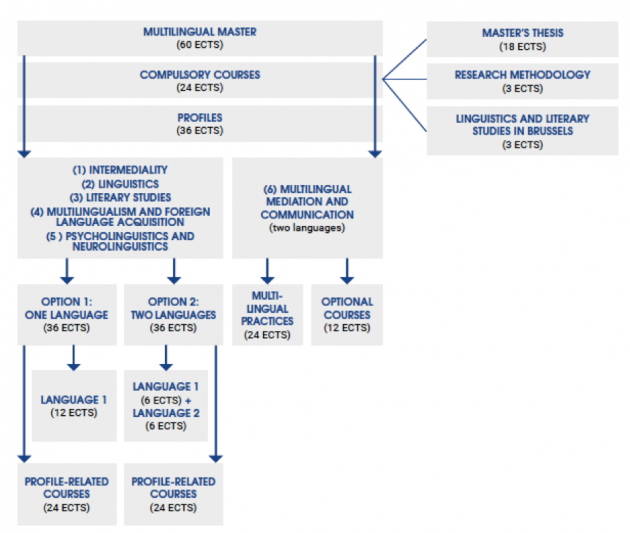
1. Compulsory Courses (All Profiles)
- Master's Thesis - 18 ECTS
- Research Methodology - 3 ECTS
- Linguistics or Literary Studies
- Translation Studies and Research Methodology (TSRM) or Interpreting Studies and Research Methodology (ISRM) for the 'Multilingual Mediation and Communication' profile
- Linguistics and Literary Studies in Brussels - 3 ECTS
2. Elective Courses (All Profiles except 'Multilingual Mediation and Communication')
Students are allowed to choose courses within their choice of profile and language(s). To complete the Multilingual Master in Linguistics and Literary Studies (60 ECTS), students must obtain 36 ECTS of electives.
1 Language - Profile
Choose two courses of 6 ECTS in the official language for which you have registered and four profile-related courses of 6 ECTS:
- Language-related courses: 12 ECTS
- Profile-related courses: 24 ECTS
2 Languages - Profile
Choose one course of 6 ECTS in your first official language choice, one course of 6 ECTS in your second official language choice, and four profile-related courses of 6 ECTS:
- Language 1: 6 ECTS + Language 2: 6 ECTS
- Profile-related courses: 24 ECTS
2.1 Language-related courses
To find all language-related courses, please click on the language(s) of your choice. The elective courses appear on the right. Click on the course title to find out more information about specific courses.
Course
- Advanced Literature in English: Prose
- Postcolonial Literature in English
- English Linguistics: The Acquisition of English
- Historical English Linguistics
- Advanced English Linguistics
- Poésie française: modernisme et avant-garde
- Acquisition du français langue étrangère
- Syntaxe du français moderne
- Grammaire appliquée à l'enseignement du FLE
- Ensayo hispánico
- Teatro hispánico
- Adquisición del español como lengua extranjera
- Sintaxis y semántica del español
- Intermediale Aspekte in deutschsprachigen Texten und im Theater
- Kulturhistorische Aspekte der deutschen Literatur
- Deutsche Sprachwissenschaft
- Deutsch als Fremdsprache
- Hedendaags Nederlands proza
- Aspecten van poëziestudie en de visuele cultuur
- Sociolinguïstiek en taalverandering
- Onderwijs van Nederlands aan anderstaligen
- Letteratura europea e italiana dal Settecento a oggi
- Generi letterari della modernità in Italia
- Stilistica e analisi testuale
- L'italiano attuale nella comunicazione
2.2 Profile-related courses
To find all profile-related courses, please click on the profile of your choice. The elective courses appear on the right. Click on the course title to find out more information about specific courses.
Profile
Course
- Storytelling: Dramaturgy and Screenwriting Research
- Theatre and Performance Studies
- Internship or Training "Intermediality"
- Intertextuality and Intermediality
- Meta Theatre
- Theory of Literary Translation
- Aspecten van poëziestudie en de visuele cultuur
- Aspecten van theatertheorie
- Intermediale Aspekte in deutschsprachigen Texten und im Theater
- Poésie et intermédialité
- Poésie française: modernisme et avant-garde
- Teatro hispánico
- Generi letterari della modernità in Italia
- Redelijk eigenzinnig. Nadenken over Mens en Maatschappij
- Advanced English Linguistics
- Historical Sociolinguistics
- English Linguistics: The Acquisition of English
- Historical English Linguistics
- Intercultural Communication
- Language Contact and Language Planning
- Multilingualism and Cognition
- Multilingualism and Literature
- Multilingual Education
- Neurolinguistics
- Psycholinguistics
- Language and the Mass Media
- Onderwijs van Nederlands aan anderstaligen
- Redelijk eigenzinnig. Nadenken over Mens en Maatschappij
- Sociolinguïstiek en taalverandering
- Deutsch als Fremdsprache
- Deutsche Sprachwissenschaft
- Acquisition du français langue étrangère
- Communication en contexte plurilingue
- Grammaire appliquée à l'enseignement du FLE
- Syntaxe du français moderne
- Adquisición del español como lengua extranjera
- Cátedra Émile Lorand: lingüística española y estudios literarios
- Sintaxis y semántica del español
- Cattedra Émile Lorand di linguistica e letteratura italiana
- L'italiano attuale nella comunicazione
- Stilistica e analisi testuale
- StadsSalonsUrbains
- Postcolonial Literature in English
- Advanced Literature in English: Prose
- Theatre and Performance Studies
- Storytelling: Dramaturgy and Screenwriting Research
- Intertextuality and Intermediality
- Meta Theatre
- Multilingualism and Literature
- Theory of Literary Translation
- Aspecten van poëziestudie en de visuele cultuur
- Aspecten van theatertheorie
- Hedendaags Nederlands proza
- Redelijk eigenzinnig. Nadenken over Mens en Maatschappij
- Intermediale Aspekte in deutschsprachigen Texten und im Theater
- Kulturhistorische Aspekte der deutschen Literatur
- Littérature urbaine multilingue
- Morale et littérature du XVIe au XVIIIe siècle
- Poésie et intermédialité
- Poésie française: modernisme et avant-garde
- Chaire Émile Lorand en littérature française
- Cátedra Émile Lorand: lingüística española y estudios literarios
- Ensayo hispánico
- Teatro hispánico
- Cattedra Émile Lorand di linguistica e letteratura italiana
- Generi letterari della modernità in Italia
- Letteratura europea e italiana dal Settecento a oggi
- StadsSalonsUrbains
- English Linguistics: The Acquisition of English
- Historical Sociolinguistics
- Intercultural Communication
- Training: Multilingual and Foreign Language Learning and Teaching
- Language Contact and Language Planning
- Multilingualism and Cognition
- Multilingualism and Literature
- Multilingual Education
- Language and the Mass Media
- Onderwijs van Nederlands aan anderstaligen
- Deutsch als Fremdsprache
- Acquisition du français langue étrangère
- Communication en contexte plurilingue
- Adquisición del español como lengua extranjera
- Redelijk eigenzinnig. Nadenken over Mens en Maatschappij
- English Linguistics: The Acquisition of English
- Training: Multilingual and Foreign Language Learning and Teaching
- Multilingualism and Cognition
- Multilingual Education
- Neurolinguistics
- Psycholinguistics
- Deutsch als Fremdsprache
- Acquisition du français langue étrangère
- Adquisición del español como lengua extranjera
- Redelijk eigenzinnig. Nadenken over Mens en Maatschappij
3. Elective Courses (Profile Multilingual Mediation and Communication)
Students are allowed to choose certain courses within two modules. To complete the Multilingual Master in Linguistics and Literary Studies (60 ECTS), students must obtain 18 ECTS of compulsory courses and an elective course of 6 ECTS within the 'Multilingual Practices' module. In addition, 12 ECTS of electives within the 'Optional Courses' module should be obtained:
Module Multilingual Practices (24 ECTS)
Compulsory courses (18 ECTS)
- Intercultural Communication - 3 ECTS
- The Language Industry - 3 ECTS
- Internship or Training "Multilingual Mediation and Communication"- 12 ECTS
Elective course - 6 ECTS
Module Optional Courses (12 ECTS)
3.1 Electives (per Module)
To find all courses per module, please click on the module. The elective courses appear on the right. Click on the course title to find out more information about specific courses.
Course
- Multilingual Practices English-Arabic
- Multilingual Practices English-Chinese
- Multilingual Practices English-German
- Multilingual Practices English-French
- Multilingual Practices English-Russian
- Multilingual Practices English-Spanish
- Audiovisual Translation
- Technology for Translators
- Language and the Mass Media
- Theory of Literary Translation
- Language Contact and Language Planning
- Multilingualism and Cognition
- Multilingualism and Literature
Course List Academic Year 2021-2022
To see which courses are available in the academic year 2021-2022, you can click on the different programme plans below.
Plan
- Profile Multilingual Mediation and Communication - 2 languages
- Profile Linguistics 1 Language
- Profile Linguistics 2 Languages
- Profile Literary Studies 1 Language
- Profile Literary Studies 2 Languages
- Profile Multilingualism and Foreign Language Acquisition 1 Language
- Profile Multilingualism and Foreign Language Acquisition 2 Languages
- Profile Psycholinguistics and Neurolinguistics 1 Language
- Psycholinguistics and Neurolinguistics 2 Languages
- Profile Intermediality - 1 language
- Profile Intermediality - 2 languages
- Exchange Ba Linguistics & Lite
- Exchange Ma Linguistics & Lite
Learning outcomes
Learning outcomes describe the intended knowledge and understanding, skills and attitudes that you must master after completing your studies. Do you want to know more about the specific learning outcomes of this programme? Click here for more information.
Three Research Centres
The Department of Linguistics and Literary Studies (LIST) hosts three research centres that are specialised in studies dealing with language-related research topics:
Brussels Institute for Applied Linguistics
BIAL conducts applied linguistic research with a focus on transculturalism - i.e. a form of cultural hybridity, which emerges when different cultural elements interact and eventually integrate with each other. BIAL approaches this overarching research theme from the perspectives of translation and interpreting, foreign language acquisition and multilingualism, special language studies and language practices.
Centre for Literary and Intermedial Crossings
CLIC offers an interdisciplinary forum for specialists in literary and theatre studies. It stimulates research across traditional boundaries and along three key concepts: media, genres and spaces. Recent work and conferences have addressed topics such as intermediality, intertextuality, adaptations, literary theory, music and literature, life writing, postcolonial rewritings and literature, postcolonial rewritings of the Western canon and historiography, literature and philosophy, literary translation, and Brussels in literature.
Centre for Linguistics
The main objective of CLIN is to promote research in theoretical and applied linguistics and the application of this research in society. CLIN addresses a broad spectrum of issues related to the structure, use, learning and teaching, development, and the social contexts of languages. Recent work includes studies on morphology, syntax, semantics and pragmatics, dialectology, sociolinguistics, socio-historical linguistics, bilingualism and bilingual education, sign language, aphasia, second language acquisition, and methodology and practice in language teaching.
Programme Director: Prof. dr. Ann Peeters
Pleinlaan 2 - 1050 Brussels
Pedagogical Assistants: Mr. Daniel Felipe Gil Martinez, Ms. Irina Stanova & Ms. Ngoc Dinh Bao
Pleinlaan 2 - 1050 Brussels
For all your questions:
muma@vub.beGeneral admission criteria
In order to apply for the Multilingual Master, students will need the following documents:
- photo
- copy of their ID (front & back) or copy of their passport (if non-EEA citizen)
- transcript of records
- copy of BA diploma(s)
- proof of European health insurance (only for enrolment)
- motivation letter & CV
- 2 recommendation letters
Admission is based upon the review of each application. After an initial check for the validity of the documents, there will be a mandatory short Skype interview, for which students will receive an email in due course.
Language requirements:
Prospective students can provide proof of sufficient knowledge of English as language of instruction by meeting one of the following criteria:
- having successfully completed one of the following language proficiency tests:
-
TOEFL iBT with minimum level: 79
-
IELTS with minimum level: academic module 6.5
-
ITACE with minimum level: B2
-
Cambridge English Qualification Scale with the following minimal level: 170
- having successfully completed secondary school at a Belgian institution;
- having a diploma of secondary or higher education where English was the language of instruction.
Please note that the test result must have been awarded no more than five years prior to the date of enrolment.
Entry requirements
Applicants should meet one of the following criteria:
- With a Bachelor of Arts in Linguistics and Literary Studies from a Flemish university, students have direct access to the master's programme.
- Students who have not obtained a Bachelor of Arts in Linguistics and Literary Studies from a Flemish university may be accepted onto the programme on the condition that they have obtained at least 48 ECTS credits in Linguistics and Literary Studies for every language they wish to major in. Exception: for the 'Multilingual Mediation and Communication' profile, applicants need to have obtained at least 60 ECTS credits in English Linguistics and Literary Studies but only 30 ECTS credits (or mother tongue level) in the second language of their choice.
- Students who do not meet the previous two conditions are admitted to the programme when they have successfully completed a tailor-made preparatory programme consisting of BA modules in Linguistics and Literary Studies.
All students who have obtained a Bachelor's degree from a non-Flemish university will be contacted for a compulsory intake interview. This interview is conducted via Skype and takes approximately 15 minutes.
Students can only major in a language for which they have obtained sufficient ECTS credits in the past. Therefore, students' choice of (one or two) language(s) should reflect their BA degree. However, students can take courses in other languages than their target languages within their chosen profile, even when they have no official degree in that language, on the condition that the student feels proficient enough to be able to pass the exams. Thus, we encourage multilingual learning in different fields of interest.
You don't have a BA in Linguistics or Literary Studies? This is the solution:
Do you have an undergraduate degree in another field of study? You can also enrol as soon as you have completed the preparatory programme for the Master of Arts in Linguistics and Literary Studies. This preparatory programme takes into account the ECTS credits that you have previously earned. It is tailor-made to your needs and is a compilation of BA courses in Linguistics and/or Literary Studies. Students who would like to take up one language in their preparatory programme, can obtain access to the Multilingual Master within a semester or one academic year, depending on the credits they have already achieved. Opting for two languages is also possible. In this case, access to the Multilingual Master in two languages is granted after two academic years.
Application deadline
Prospective students are advised to apply as soon as possible, even if they have not yet obtained their degree. Applications can only be submitted through our website.
- Non-EEA citizens need to apply before the 1st of April 2022.
- EEA-citizens need to apply before the 1st of September 2022.
Note: if the proof of English proficiency or APS certificate is not ready before the deadline, you can always submit it later instead of missing the deadline.
Tuition fees
All Flemish universities in Belgium, including the VUB, are financed by the Flemish government, which results in relatively low tuition fees. The general tuition fee for the Multilingual Master is approximately €962/year for students with EU/EEA nationality and €3,248/year for students with a non EU/EEA nationality. More information can be found via this link.
Scholarships
Although the number is limited, the Flemish Government provides a number of scholarships for excellent students, the Master Mind Scholarship. In order to qualify you need to meet the following criteria:
- You are coming to Belgium for your studies (distance learning is not allowed)
- You have obtained a CGPA of at least 3.5 out of 4
- You have an English proficiency level of at least 94 for TOEFL iBT, 7 for IELTS or 185 for Cambridge English Qualification Scale
- You cannot combine the scholarship with another scholarship.
If you wish to apply for this scholarship, please make sure to mention this in your motivation letter!
FAQ for future students
Find the answer to all your questions related to the programme here!
Because of COVID-19, we will most likely be offering the programme in a hybrid way: we would offer classes on campus when possible, but also make sure to record them and to offer online interaction with students who cannot make it to campus. For the exams, we would also offer digital alternatives. In that case, it would therefore not be necessary to travel to Belgium.
While the programme is itself a multilingual programme, officially the language of instruction is English. It is therefore not necessary to provide us with an official proof of proficiency for any of the other languages. However, please bear in mind that all courses are taught in the target language and that we recommend at least a B2-level on the CEFR.
Each preparatory programme is custom-built and based on the needs of the indivual student. Each trajectory will therefore be different, but there are some general properties that apply to all students:
- The courses are taken from our (Dutch-taught) Bachelor's programme, but all courses are taught in the target language
- We base ourselves on the official Transcript of Records that you upload when you submit your application
- The exact content of the programme depends on the profile you choose and the number of languages you wish to major in:
- For most profiles, you need an academic background equivalent to 24 ECTS in Linguistics and 24 ECTS in Literary Studies per language you wish to major in;
- For Multilingual Mediation and Communication, you need 30 ECTS in Linguistics and 30 ECTS in Literary Studies for English, but only 15 ECTS in Linguistics and 15 ECTS in Literary Studies for your second language. For this profile, you do not need to have obtained 30 ECTS in the second language if you are a native speaker of this language.
You can send an e-mail to muma@vub.be, so we can add the documents for you, or you can directly contact Student Administration via admissions@vub.be.
For all general questions, you can send an e-mail to muma@vub.be. However, should you have more specific questions, you can also contact members from the team individually. If you have questions about the content of the programme, you can contact one of the pedagogical assistants:
- for the profiles related to Linguistics: Ms. Ngoc Dinh
- for the profiles related to Literary Studies: Ms. Irina Stanova
- for the profile of Multilingual Mediation and Communication: Mr. Daniel Gil Martinez
Should you have any questions concerning the application process, your visa application or your administration during the programme, you can contact the coordinator for Internationalisation: Ms. Astrid Slegten
FAQ for current students
Find the answer to all your MUMA-related questions here!
For all general concerns regarding the MUMA programme, please contact the pedagogical assistants via email.
We kindly ask you to consult the website of the Belgian Government for the latest regulations for travelling to Belgium and the VUB website for the university’s policy. You can also contact the coordinator for Internationalisation for more information.
While you are certainly allowed to travel back home, we wish to remind you that due to COVID-19, we cannot guarantee that you will be able to travel back to Belgium, since the travel policy might always change. Rental obligations also continue, unless you cancel your room which comes with an extra cost (early breach of contract). Finally, students who require a visa cannot leave Belgium before receiving their Belgian residence card. Otherwise a new visa application will be needed to return to VUB.
The online classes follow the same curriculum as the on-campus classes. All learning materials are provided on Canvas. Make sure you follow the online classes according to the schedule to keep up with the learning pace. We advise you not to skip online classes and to study the recorded lectures through the semester.
Do not hesitate to contact the Study Guidance team via phone (02/629.23.06) or email (guidance@vub.be). If you have an urgent concern, you can also contact the MUMA assistants via email.
We recommend that you contact VUB’s Social Legal & Legal Support to seek advice for a range of financial issues or other socio-legal services.
If you face communication difficulties due to technical issues, we would like to recommend Microsoft Teams and Outlook emails as the main communication channels. We also advise you to start contacting the group early for the group assignments.
You can also join the MUMA student group on Facebook and follow our activities to get to know more peers in the programme.
If a meeting could not resolve a teamwork conflict, we recommend contacting your professor or the MUMA assistants as soon as possible.
Yes. All the exams will be administered online for this semester and on campus if possible. Detailed information regarding the exams can be found here.
Do not forget to check your exam schedule and always keep an eye on Canvas and your VUB email for the latest announcements.
Students in certain study profiles (i.e. Multilingualism & Foreign Language Acquisition, Multilingual Mediation & Communications or Intermediality) have the choice to register for the course “Internship and Training”. We suggest you contact the professors in charge of the courses to raise your concern. You can also consult this website for internships in the cultural sector, and websites as www.indeed.be and www.stepstone.be.
VUB Career Center is the place to be! You can contact the center for advice on building your career. You can also look for student jobs, internships, volunteering opportunities and jobs via this website.
Moreover, you can follow the MUMA Facebook page and student group to get updates on interesting opportunities.
Programme Director
---
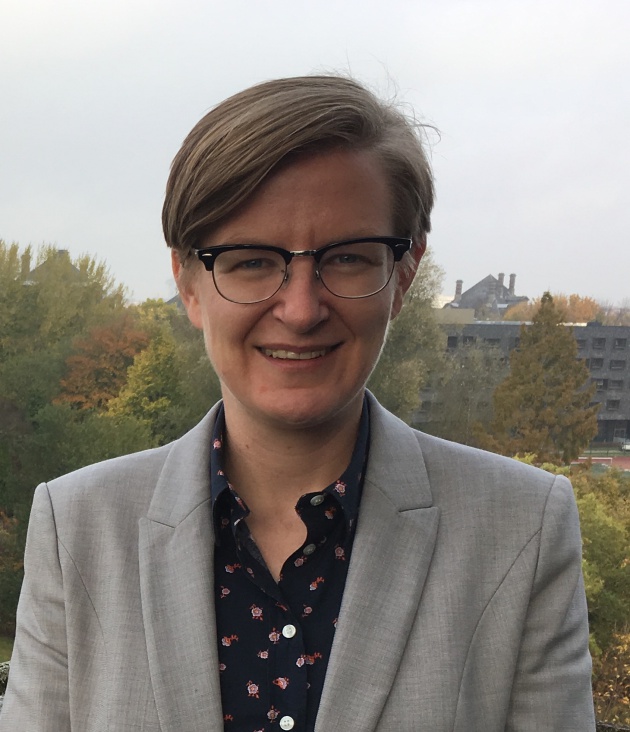
Pedagogical Assistants
---
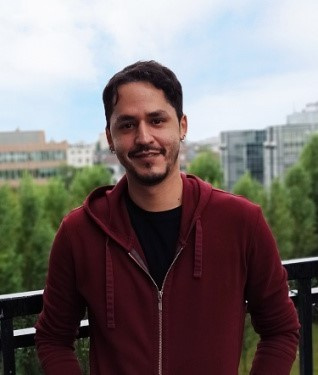
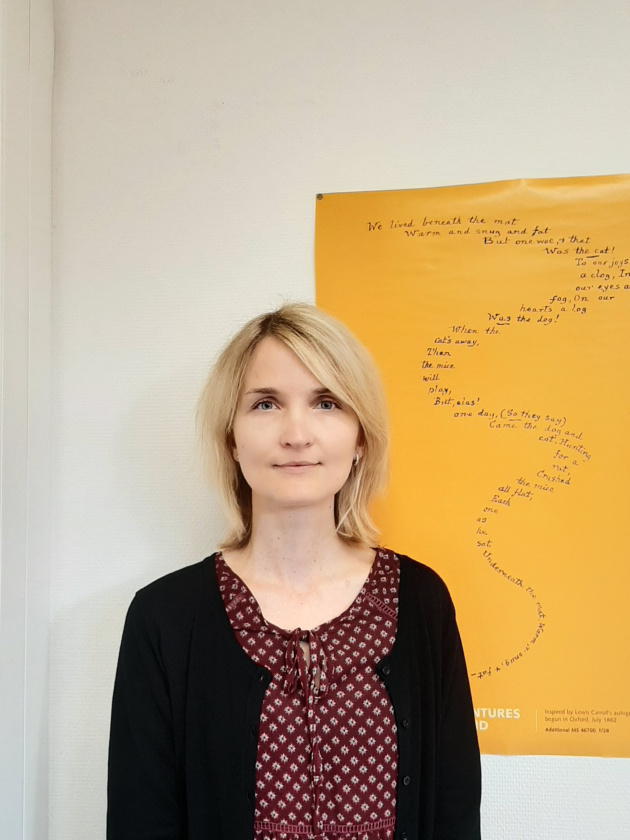
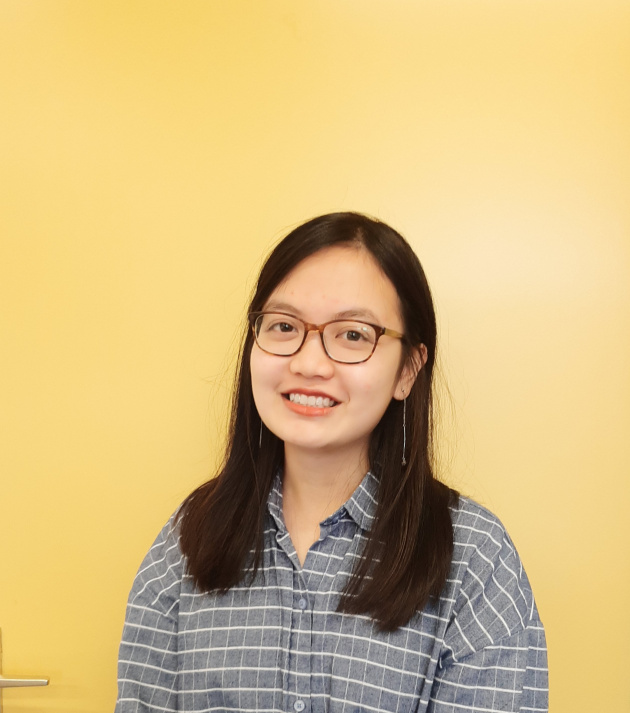
Study Guidance Counsellors
---
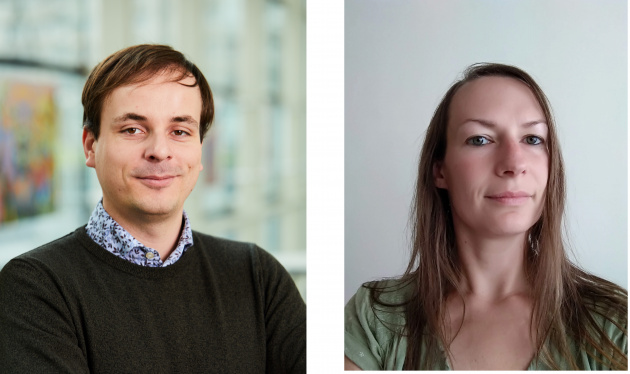
Mr. Stijn CEULEMANS & Ms. Joyce HUVAERE
E-mail: studypath.lw@vub.be
Room: Pleinlaan 2, 5B402
Assistance with:
- Study progress
- Exemptions
Study Advisor
---
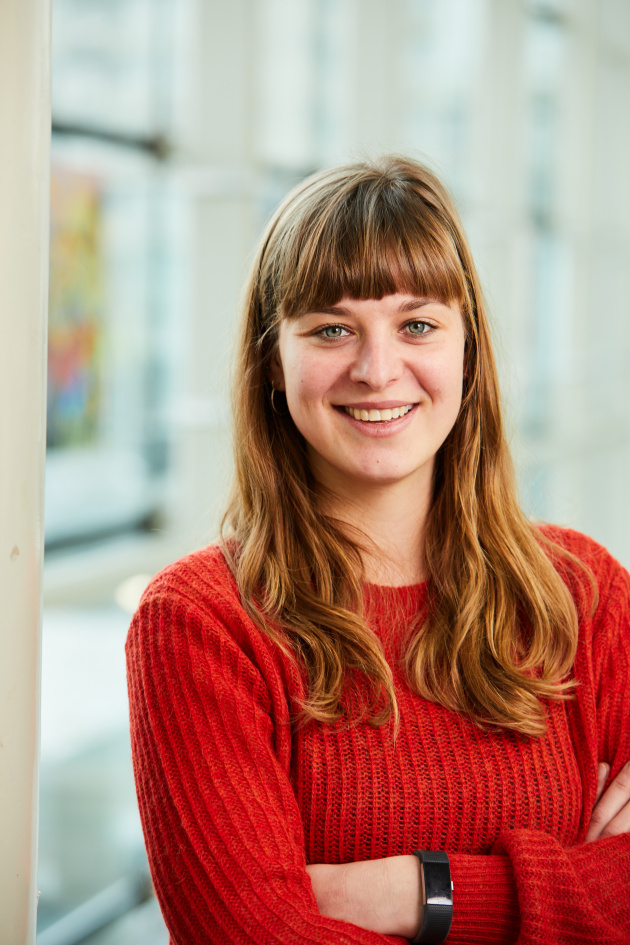
Ms. Febe VANDERSTEENE
E-mail: Febe.Vandersteene@vub.be
Assistance with:
- Study methods
- Planning
- Thesis topic registration in online tool MaThIS
Coordinator Internationalisation
---
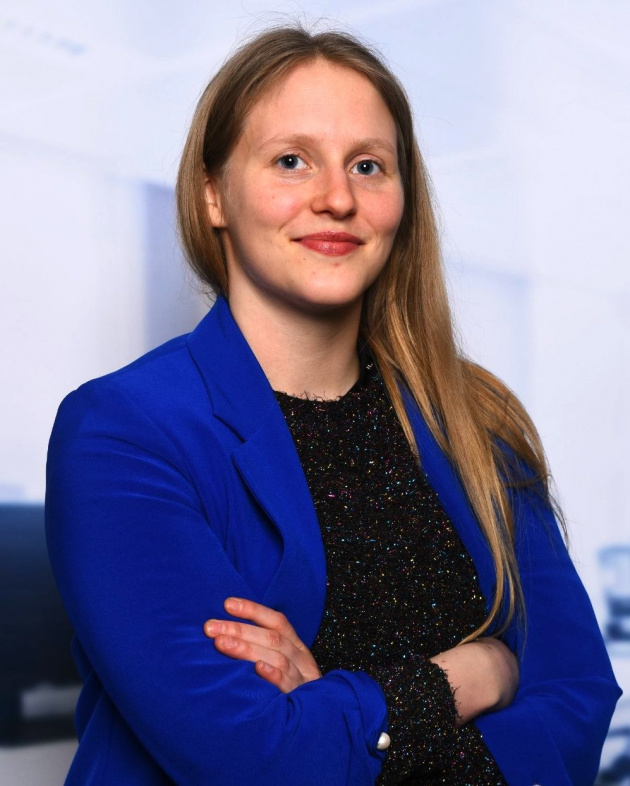
Faculty & Staff
---
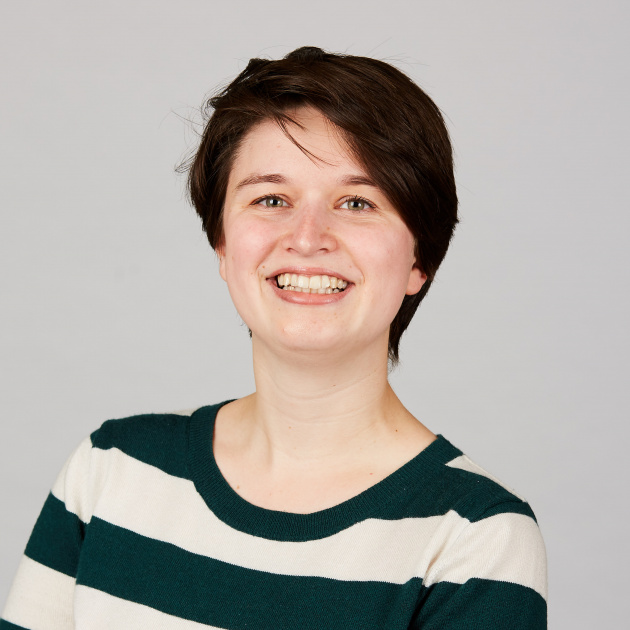
Dr. Janna AERTS
(e-mail: Janna.Aerts@vub.be)
Research topics:
-
Nederlandse literatuur
-
Oorlogsdagboeken
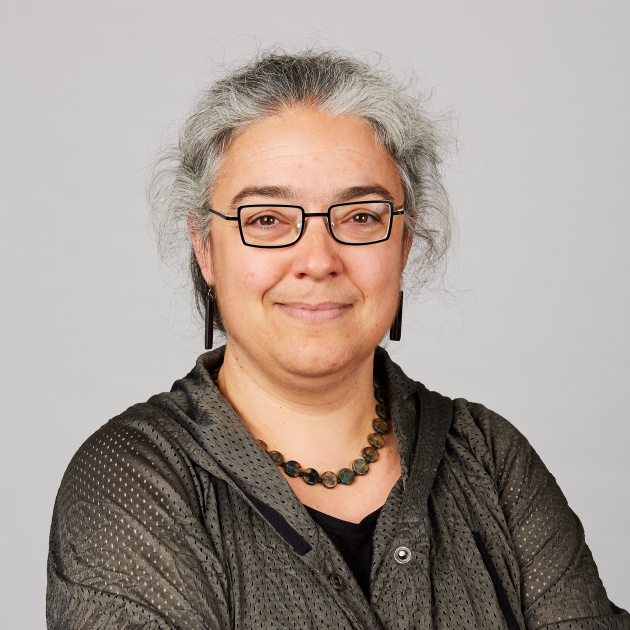
Prof. dr. Inge ARTEEL
(e-mail: Inge.Arteel@vub.be; room: Pleinlaan 2, 5B413)
Research topics:
- Contemporary Austrian and German Literature
- Drama and Theatre Studies
- Literary Theory
- Gender Studies
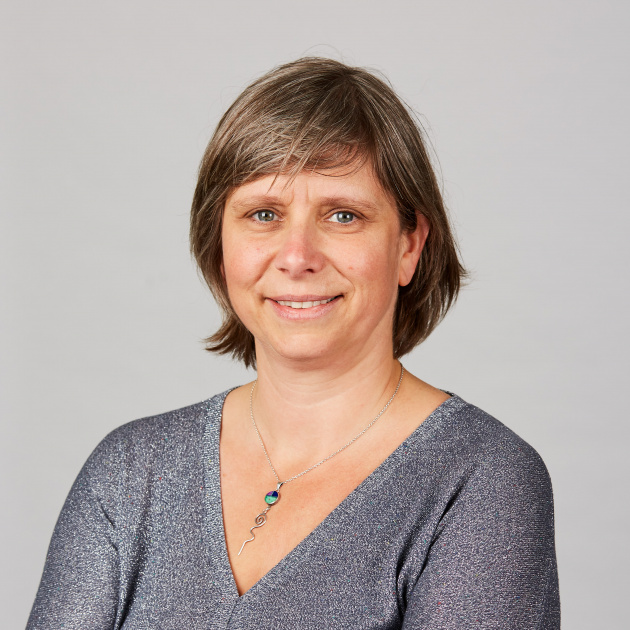
Prof. dr. Elisabeth BEKERS
(e-mail: Elisabeth.Bekers@vub.be; room: Pleinlaan 2, 5B419)
Research topics:
- Black British Literature
- Postcolonial Literatures, especially African Literatures (Continent and Diaspora)
- 'Migrant' Literature in Flanders, Europe and Brussels in Contemporary Literature
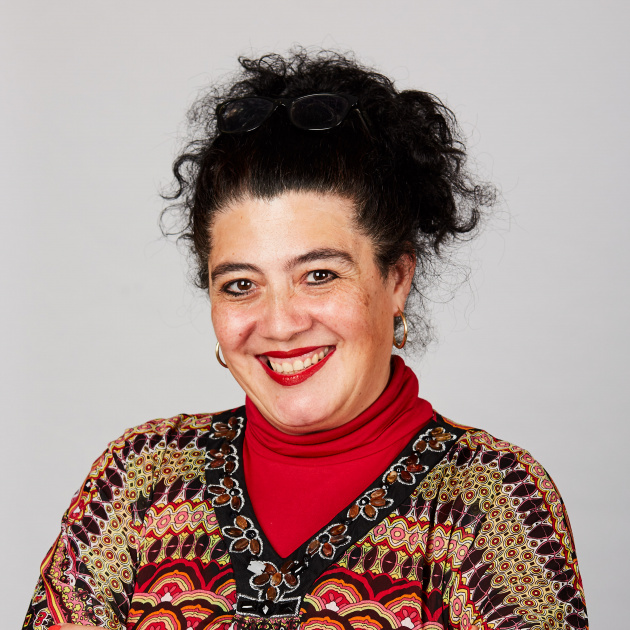
Prof. dr. Diana CASTILLEJA
(e-mail: Diana.Castilleja@vub.be; room: Pleinlaan 2, 5B421)
Research topics:
- Novela histórica: entre la verdad y la ficción (Historical Novel: Between Truth and Fiction)
- Autoficción o autonarración (Autofiction or Writing the Self)
- Alteridad y otredad (Alterity and Otherness)
- Intermedialidad en la novelística hispánica (Intermediality)
- Narrar el cuerpo en la literatura (Body in Literature)
- Viaje y narración (Travel Narratives)
- Ensayo hispánico (Hispanic Essay)
- Narrativa en Spanglish (Spanglish Fiction and Non-fiction)
- Transficcionalización (Transfictionality)
- Paraliteratura (Paraliterature)
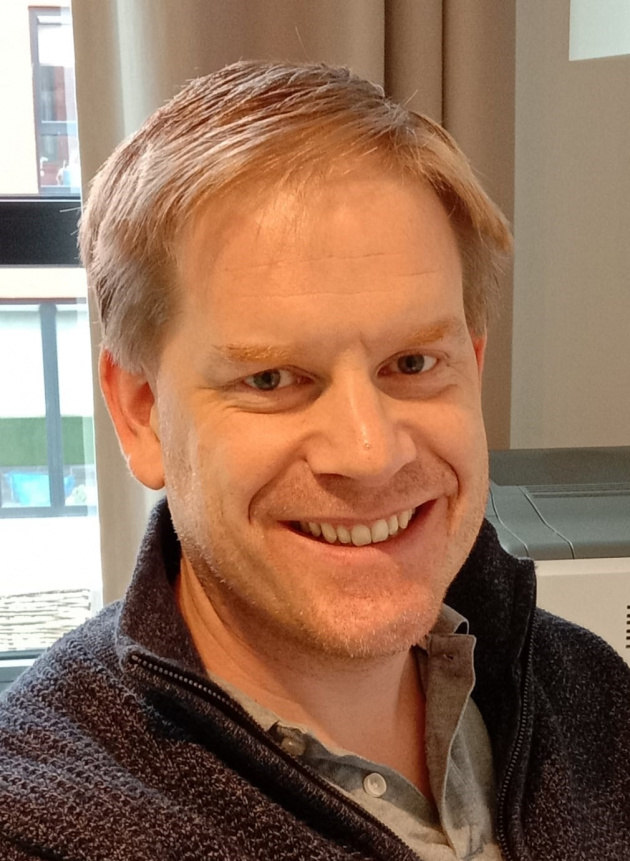
Prof. dr. Antoon COX
(e-mail: Antoon.Cox@vub.be)
Research topics:
- Linguistic ethnography
- Interpreting studies
- Interactional sociolinguistics
- Health communication
- Institutional and business communication
- Intercultural and multilingual communication
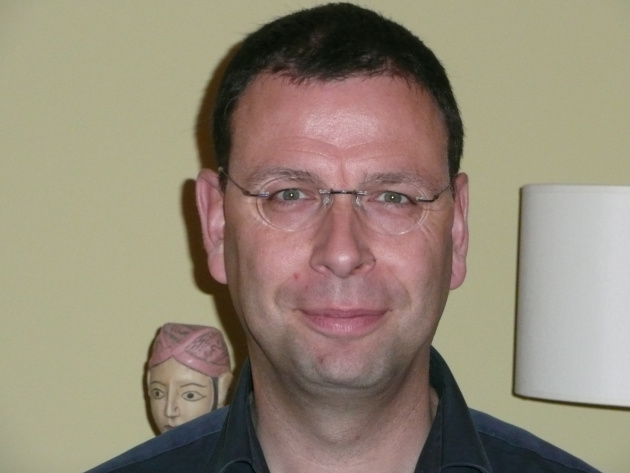
Dr. Geert CRAUWELS
(e-mail: Geert.Crauwels@vub.be)
Research topics:
-
Discourse analysis
-
Translatibility
-
Intermodality
-
Humour (theory)
-
Style analysis
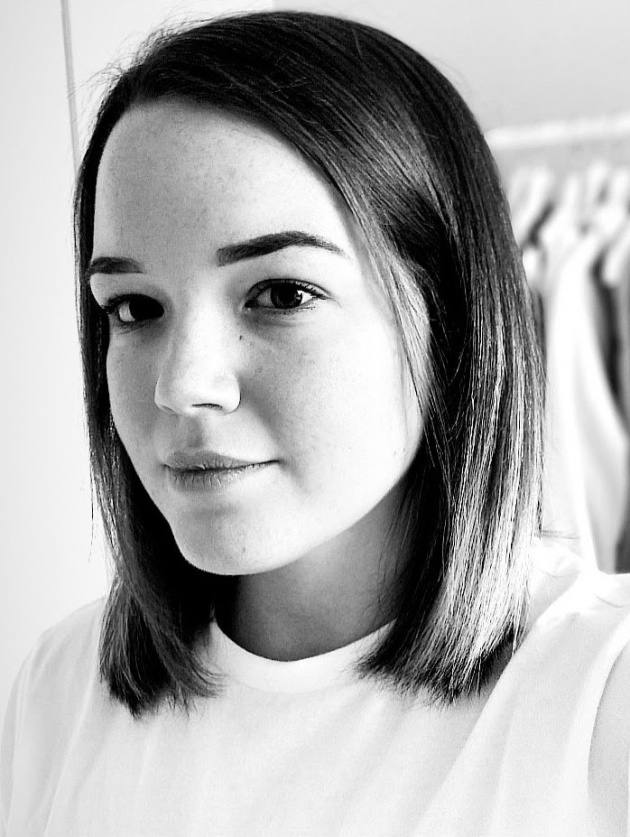
Ms. Yasmin CROMBEZ
(e-mail: Yasmin.Crombez@vub.be; room: Pleinlaan 2, 5B541)
Research topics:
-
(Historical) sociolinguistics
-
Heritage language linguistics
-
English - Dutch language contact
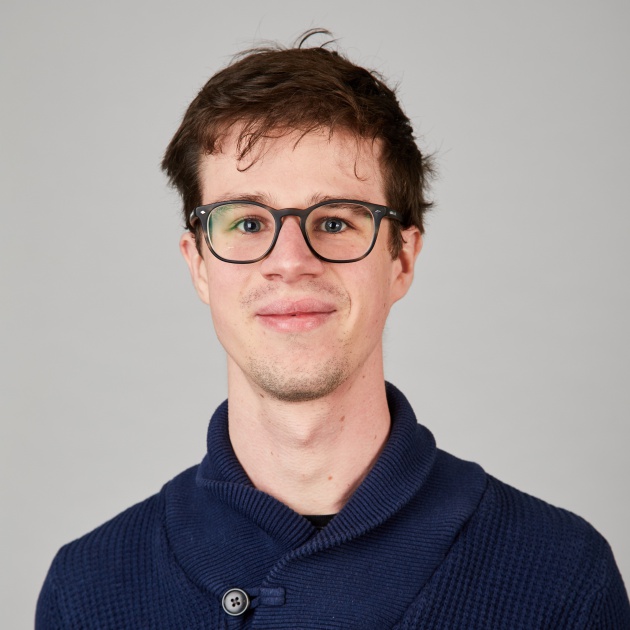
Dr. Bastien DE CLERCQ
(e-mail: Bastien.De.Clercq@vub.be; room: Pleinlaan 2, 5B444)
Research topics:
- The role of linguistic complexity, accuracy and/or fluency in second language acquisition
- Other topics on the teaching or learning of L2 English (in Flanders)
- The acquisition of L2 phonology: Training, perception and production studies
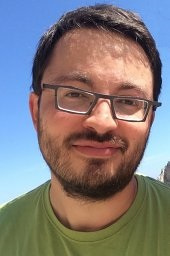
Dr. Mathieu DECLERCK
(e-mail: Mathieu.Declerck@vub.be; room: Pleinlaan 2, 5B446)
Research topics:
-
Bilingualism/multilingualism language processing
-
Dialect processing
-
Cognitive control
-
Self-monitoring of speech errors
-
Reading
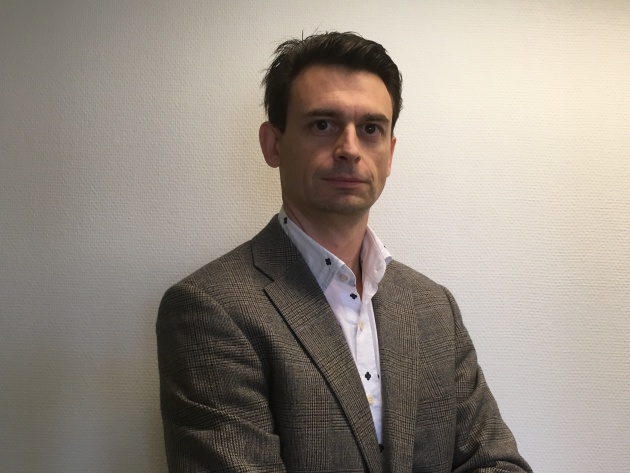
Prof. dr. Ludovic DE CUYPERE
(e-mail: Ludovic.De.Cuypere@vub.be; room: Pleinlaan 2, 5B441)
Research topics:
- A corpus-based analysis of an alternating (morpho-syntactic) construction in a variety of the outer/expanding circle of English
- The acquisition of an English alternating construction by L2 language learners
- Behavioral Profile Analysis of English near-synonyms
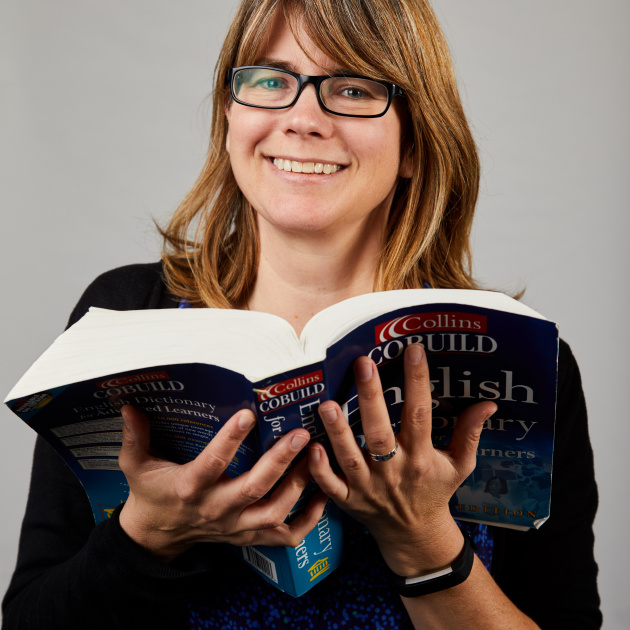
Prof. dr. Julie DECONINCK
(e-mail: Julie.Deconinck@vub.be)
Research topics:
- Vocabulary learning
- Language instruction
- Social and cultural aspects of language learning
- Multilingualism
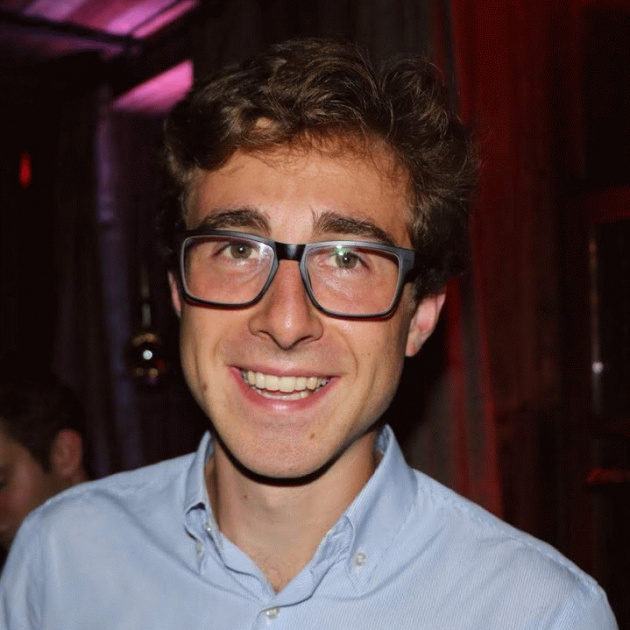
Prof. dr. Stefano DE PASCALE
(e-mail: Stefano.De.Pascale@vub.be; room: Pleinlaan 2, 5B448)
Research topics:
- Corpus & Computational Linguistics
- Lexical & Semantic Variation
- Sociolinguistics
- Cognitive Linguistics

Prof. dr. Ronald GEERTS
(e-mail: Ronald.Geerts@vub.be; room: Pleinlaan 2, 5B411)
Research topics:
- Screenplays and Screenwriting
- Literary Authors as Screenwriters
- Stage Adaptations
- Inter- and Transmediality in Theatre, Literature, and Film
- (General) Theatre Studies

Prof. dr. David GULLENTOPS
(e-mail: David.Gullentops@vub.be; room: Pleinlaan 2, 5B436)
Research topics:
- Text Edition (Poetry, Screenplays, Correspondence,...)
- Thematic Analyses of Works by Georges Eeckhoud, Emile Verhaeren, Maurice Carême, Louis Laloy, Jean Cocteau, Edmond Rostand, Blaise Cendrars, ...
- Literary Magazines
- Intermediality (Poetry, Song, Adaptations, ...)
- Scenic Analysis of Performance Readings
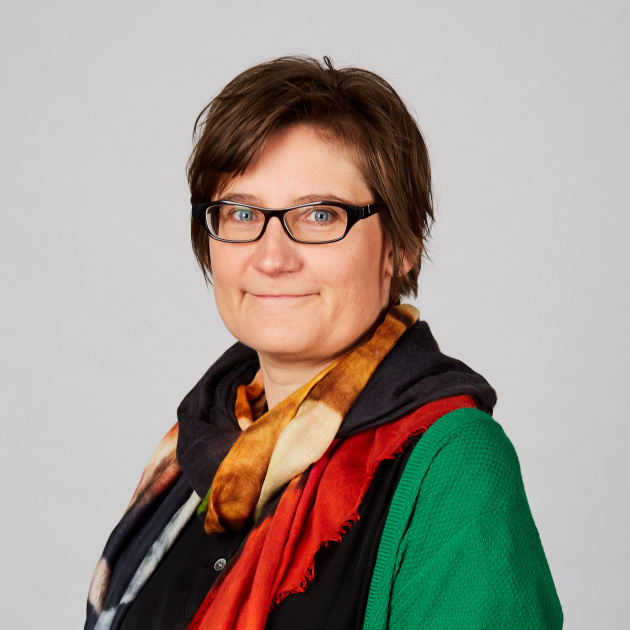
Prof. dr. Janine HAUTHAL
(e-mail: Janine.Hauthal@vub.be; room: Pleinlaan 2, 5B419)
Research topics:
- contemporary literatures in English (British drama, British and white settler ‘fictions of Europe’)
- intermediality studies
- transmedial and intercultural narratology
- genre theory and metareference
- postdramatic (multilingual) theatre
- postcolonial literatures (Black British)
- popular culture in literature and popular literary genres
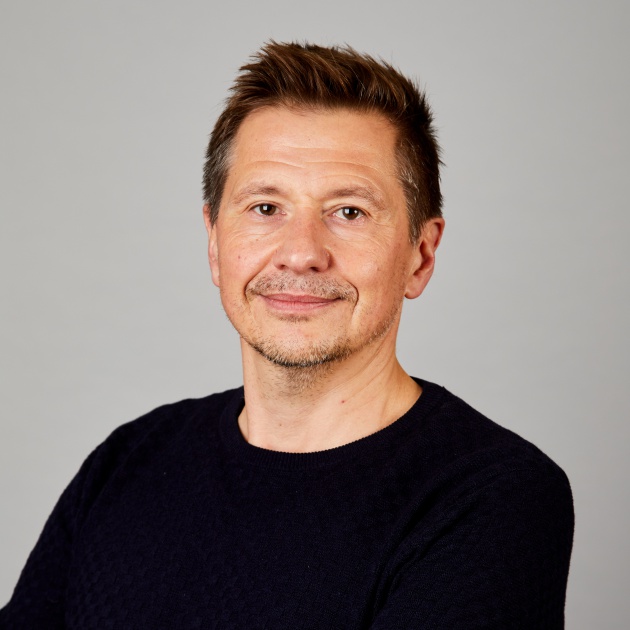
Prof. dr. Alex HOUSEN
(e-mail: Alex.Housen@vub.be; room: Pleinlaan 2, 5B435)
Research topics:
- English Grammar
- Variation in and Varieties of English
- Second/Foreign Language Learning & Teaching
- Multilingualism
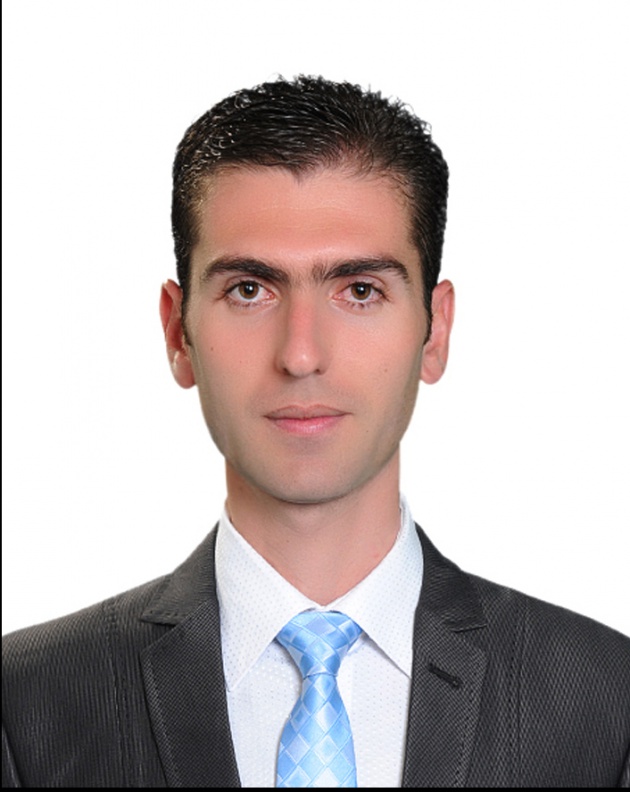
Mr. Gabi ISSA
(e-mail: Gabi.Issa@vub.be)
Research topics:
- Translation and Interpreting (English-Arabic)
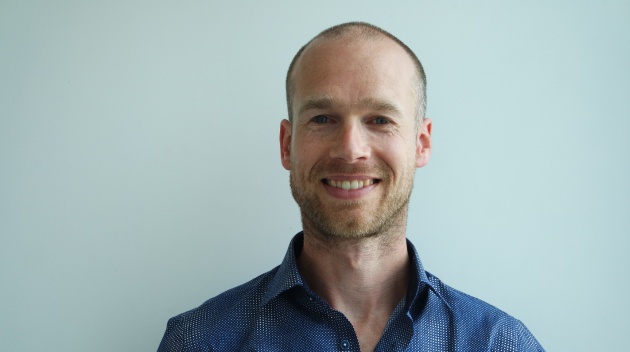
Prof. dr. Koen KERREMANS
(e-mail: Koen.Kerremans@vub.be; room: Pleinlaan 5, 307)
Research topics:
- Specialised Translation
- Terminology
- Translation Technology
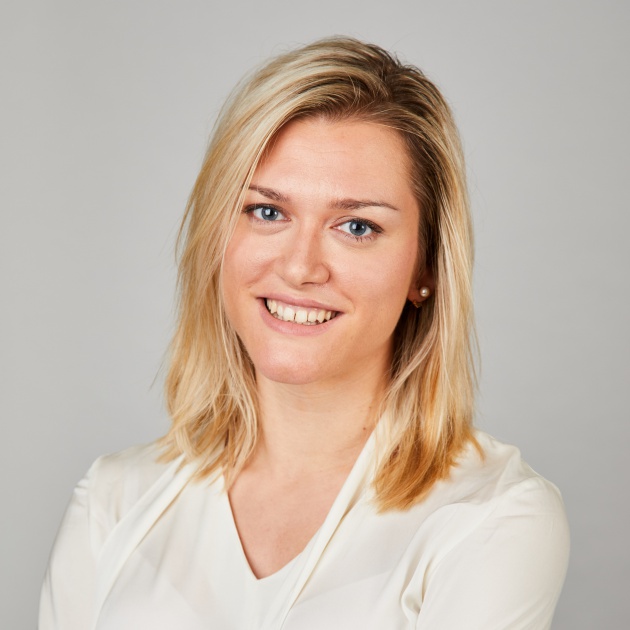
Prof. dr. Stefanie KEULEN
(e-mail: Stefanie.Keulen@vub.be; room: Pleinlaan 2, 5B455)
Research topics:
- Developmental Speech Disorders (Childhood Apraxia of Speech)
- Acquired Speech Disorders (Apraxia of Speech, Ataxic Dysarthria)
- Foreign Accent Syndrome
- Electromagnetic Articulography

Ms. Leonie KREUZER
(e-mail: Leonie.Kreuzer@live.de)
Research topics:
- Theater interpreting
- Scandinavian gothic literature, Ibsen and roman noir
- Conference interpreting DE, FR, EN, SV, NO
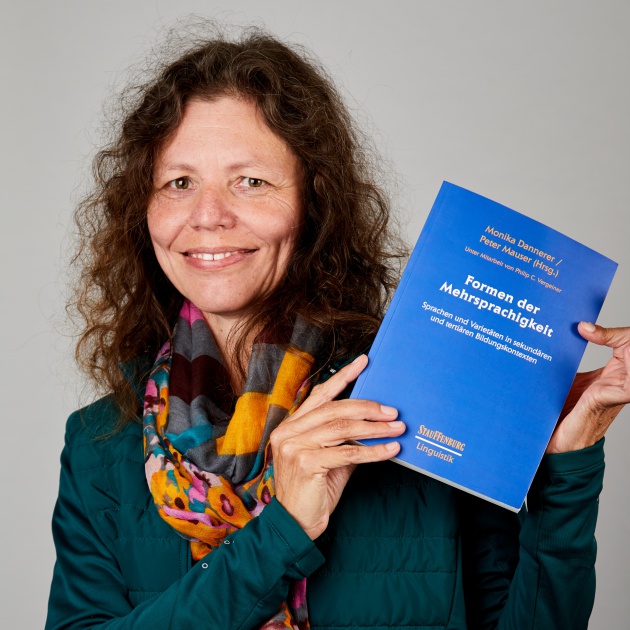
Prof. dr. Katja LOCHTMAN
(e-mail: Katja.Lochtman@vub.be; room: Pleinlaan 2, 5B417)
Research topics:
- Foreign Language Acquisition and Teaching
- German as a Foreign Language
- German Linguistics
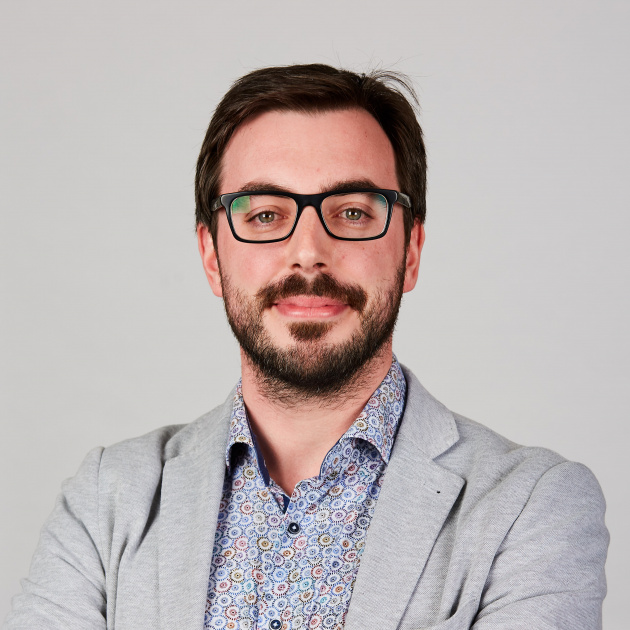
Dr. Mathias MEERT
(e-mail: Mathias.Meert@vub.be)
Research topics:
- German-language Drama and modernist Pantomime
- Fin-de-siècle Austrian Literature
- German-Jewish literature and theatre
- Intertextuality
- Drama and narratology
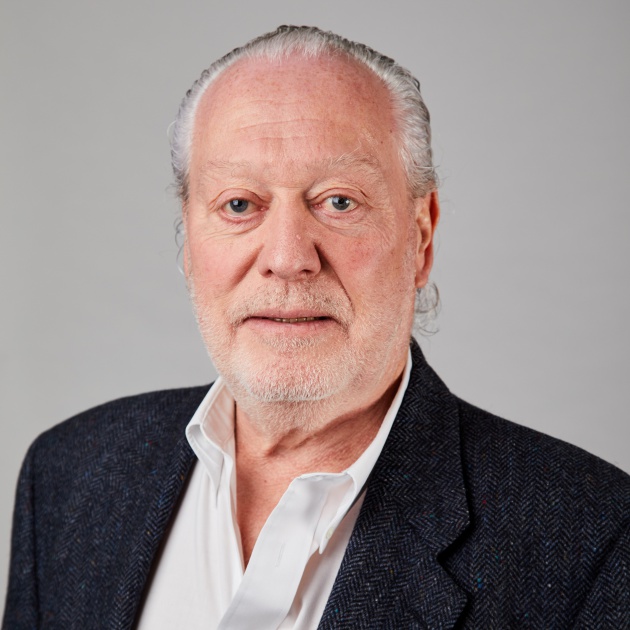
Prof. dr. Philippe PAQUIER
(e-mail: Philippe.Paquier@vub.be; room: Pleinlaan 2, 5B455)
Research topics:
- Psycho- and Neurolinguistics
- Aphasiology
- Pediatric Neurological Neurocognitive and Speech/Language Disorders
- Epileptic Encephalopathies with Neurocognitive Regression
- Syndrome of Cerebellar Mutism
- Long-Term Neurocognitive Outcome of Childhood Brain Tumor Survivors
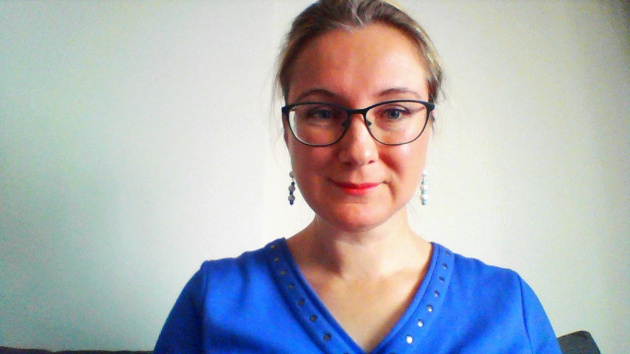
Dr. Catharina PEERSMAN
(e-mail: Catharina.Peersman@vub.be; room: 5B443)
Research topics:
- The Rise and Use of Written Vernaculars, Language and Identity in Medieval Flanders
- Medieval Multilingualism
- Historical Sociolinguistics
- French Linguistics
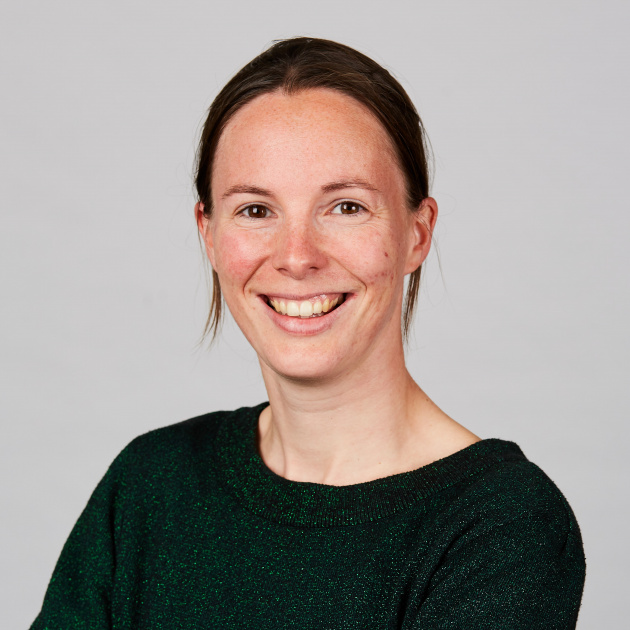
Dr. Lesley PENNÉ
(e-mail: Lesley.Penne@vub.be; room: Pleinlaan 2, 5B454a)
Research topics:
- Space and Memory in Contemporary Belgian Literature in German
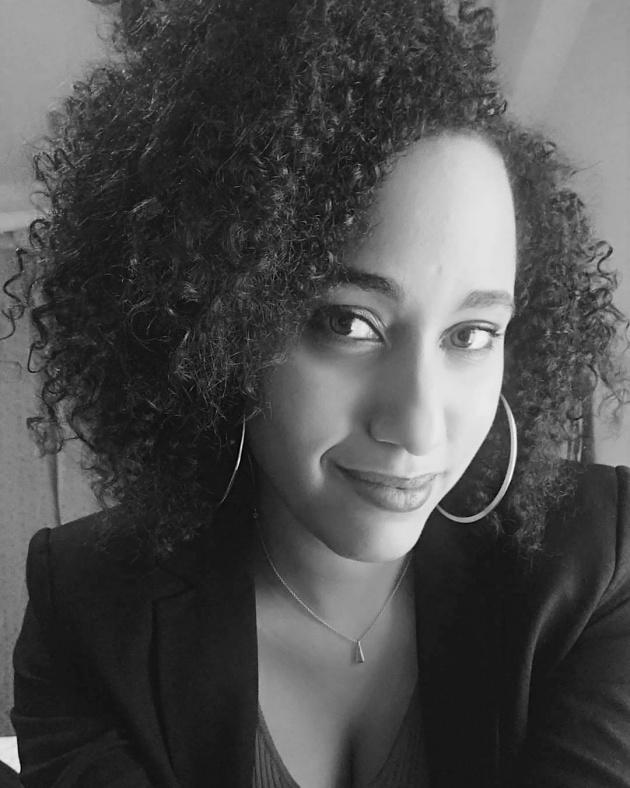
Dr. Tatiana PIETERS
(e-mail: Tatiana.Pieters@vub.be; room: Pleinlaan 2, 5B432)
Research topics:
- French Linguistics
- Second Language Acquisition
- Grammatical Gender
- Grammar
- Multilingualism
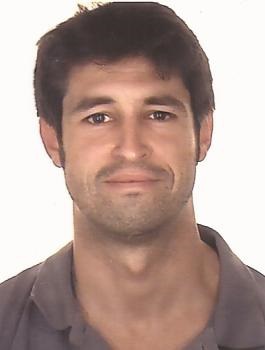
Dr. Guillermo SANZ GALLEGO
(e-mail: Guillermo.Sanz.Gallego@vub.ac.be)
Research topics:
- Translation and Literature/Politics/Censorship/Exile/Propaganda
- Translation Ethics
- Translator and Interpreter Training
- The Spanish Civil War
- Franco Regime
- Retranslation
- Modernism
- James Joyce
- Translation Studies and Research Methodology
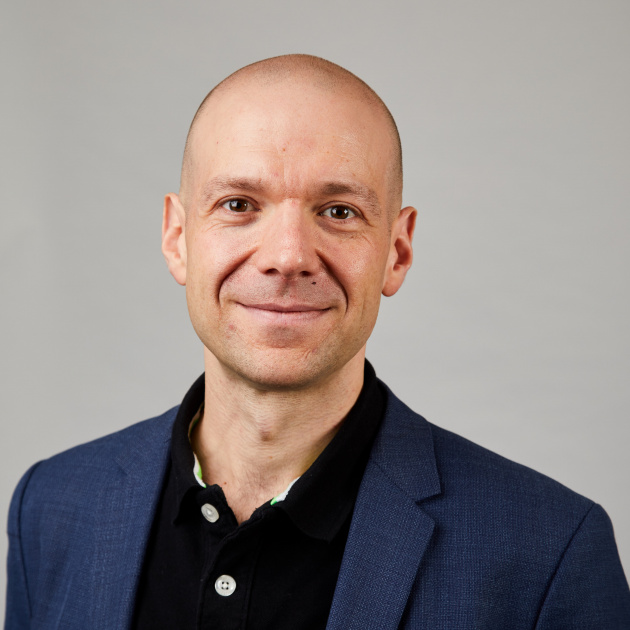
Prof. dr. Arvi SEPP
(e-mail: Arvi.Sepp@vub.ac.be)
Research topics:
- Literature and Politics
- Multilingualism and Literature
- German-Jewish Literature
- Exile and Literature
- Role of Writers as Public Intellectuals and Dissidents
- Literary Translation (with a Focus on the Sociology of Translation)
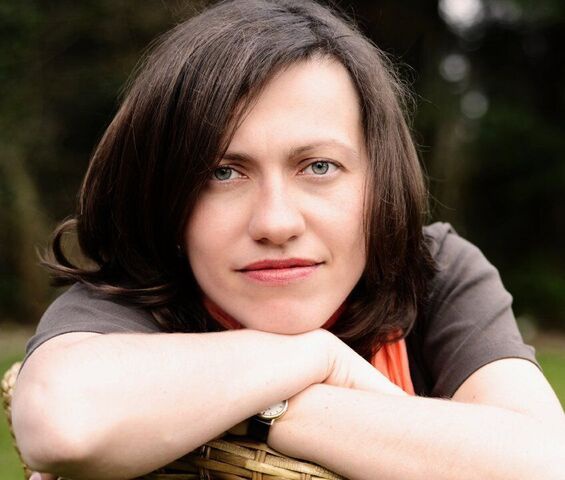
Ms. Elena SOLONINA
(e-mail: Elena.Solonina@vub.be; room: Pleinlaan 2, 4F65)
Research topics:
- Urban Studies
- Philology (Russian, English, German)
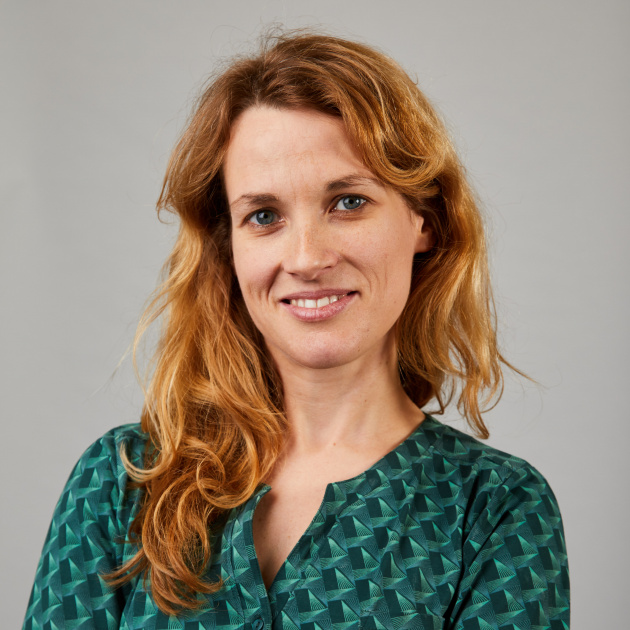
Prof. dr. Hélène STENGERS
(e-mail: Helene.Stengers@vub.be)
Research topics:
- Interpreting and translation didactics
- Interpreting and translation technology
- Interpreting and translation practice
- Public service interpreting
- L2 vocabulary acquisition / phraseology
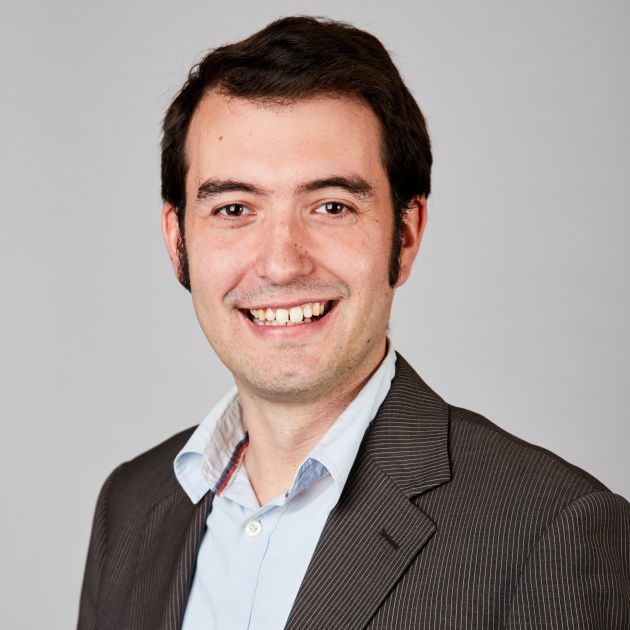
Prof. dr. Esli STRUYS
(e-mail: Esli.Struys@vub.be; room: Pleinlaan 2, 5B415)
Research topics:
- Multilingualism, Cognition, and the Brain
- Interpreting and Cognition
- Multilingual Education
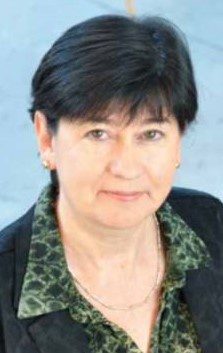
Prof. dr. Martina TEMMERMAN
(e-mail: Martina.Temmerman@vub.be; room: Pleinlaan 5, 308)
Researh topics:
- Conversation and Discourse Analysis of Journalistic Production
- Political Interviews
- The History of Women's Magazines
- Applications of New and Social Media in Journalism
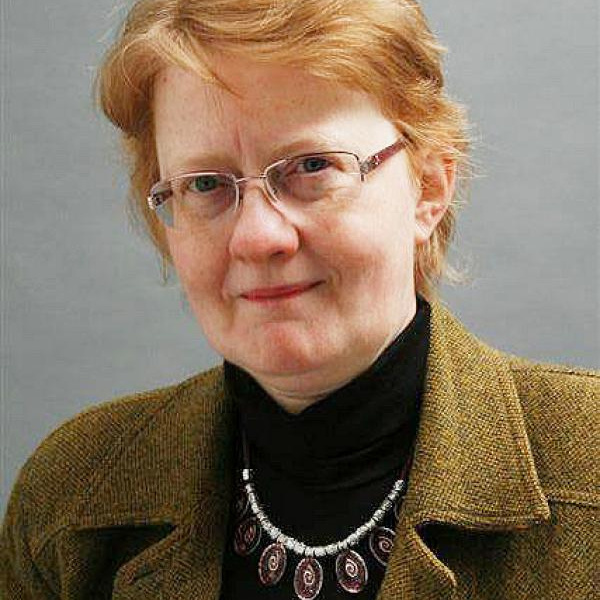
Prof. dr. Rita TEMMERMAN
(e-mail: Rita.Temmerman@vub.be; room: Pleinlaan 5, 316)
Research topics:
- Terminology / Terminography
- Cognitive Linguistics
- Applied Linguistics
- Translation Studies
- Computer-assisted Translation
- Metaphor and Science
- Domain-specific Languages
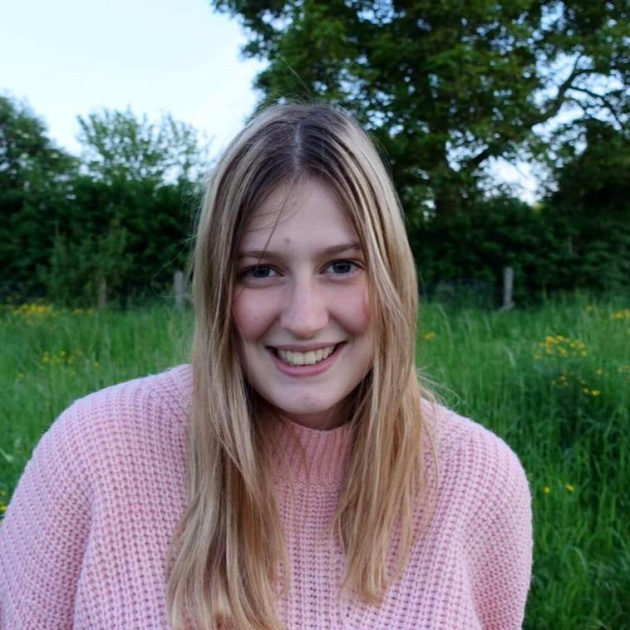
Ms. Jade THOMAS
(e-mail: Jade.Thomas@vub.be; room: Pleinlaan 2, 5B419)
Research topics:
- Contemporary American Literature and Drama
- Theatre and Performance Studies
- Media Studies
- Critical Posthumanism
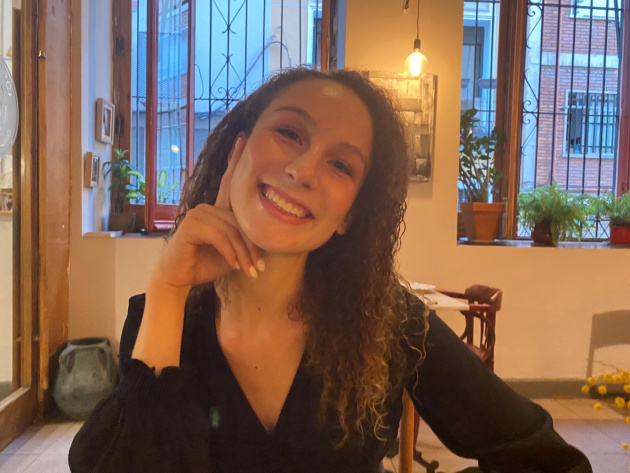
Ms. Brenthe TILBURGHS
(e-mail: Brenthe.Tilburghs@vub.be; room: 5B454b)
Research topics:
- Spanish as a Foreign Language
- The Functional Use of Discourse Markers
- Interlanguage Pragmatics
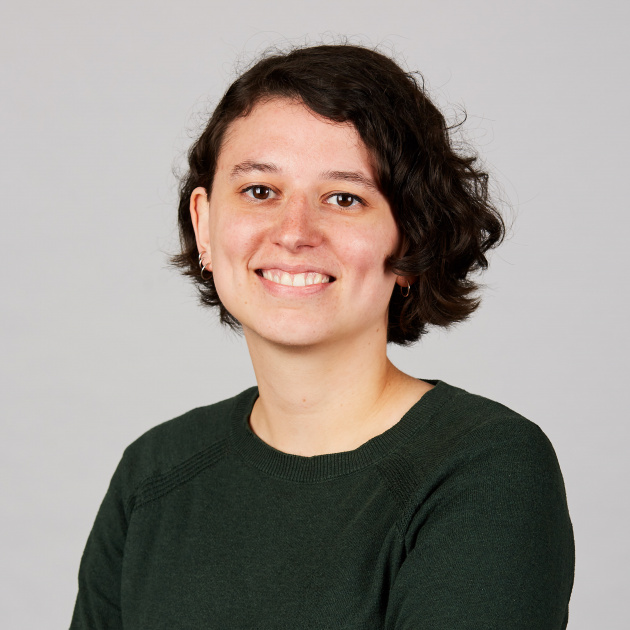
Dr. Hannah VAN HOVE
(e-mail: havhove@vub.be)
Research topics:
- British experimental women’s fiction
- Modernism
- Postmodernism
- Literary Theory
- Contemporary Fiction
- Essay as Literary Form
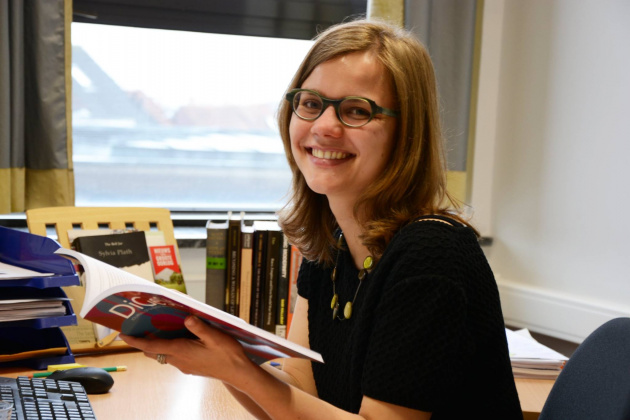
Dr. Birgit VAN PUYMBROECK
(e-mail: birgit.van.puymbroeck@vub.be)
Research topics:
- Modernism
- Comparative and transnational approaches
- Print culture, especially periodical studies (e.g. literary magazines)
- Literary radio studies and sound culture
- Women’s writing
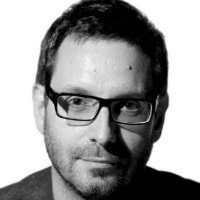
Prof. dr. Dan VAN RAEMDONCK
(e-mail: Dan.Van.Raemdonck@vub.be)
Research topics:
- Morphology
- Syntax
- Semantics
- Discourse Analysis
- French Sociolinguistics
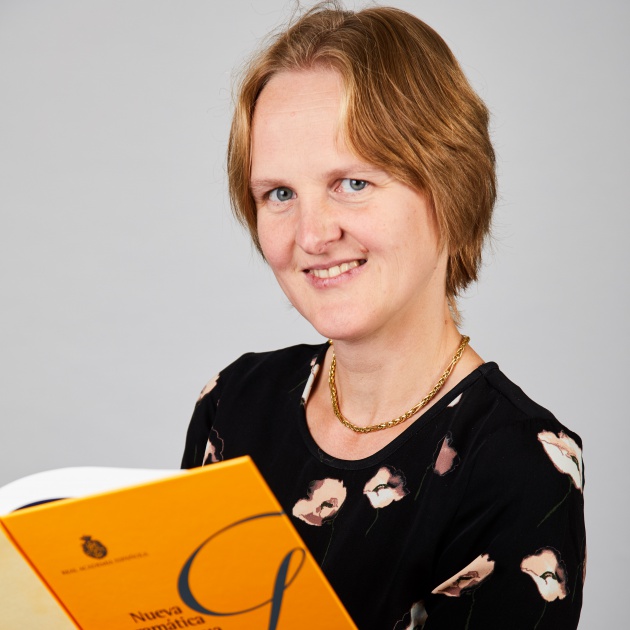
Prof. dr. An VANDE CASTEELE
(e-mail: An.Vande.Casteele@vub.be; room: Pleinlaan 2, 5B431)
Research topics:
- Acquisition of Spanish as a Second Language
- Interlanguage Pragmatic Discourse Analysis
- Speech Act Analysis
- Use of Discourse Particles
- Analysis of Referential Mechanisms (Proper Names, Pronouns and Appositive Constructions)
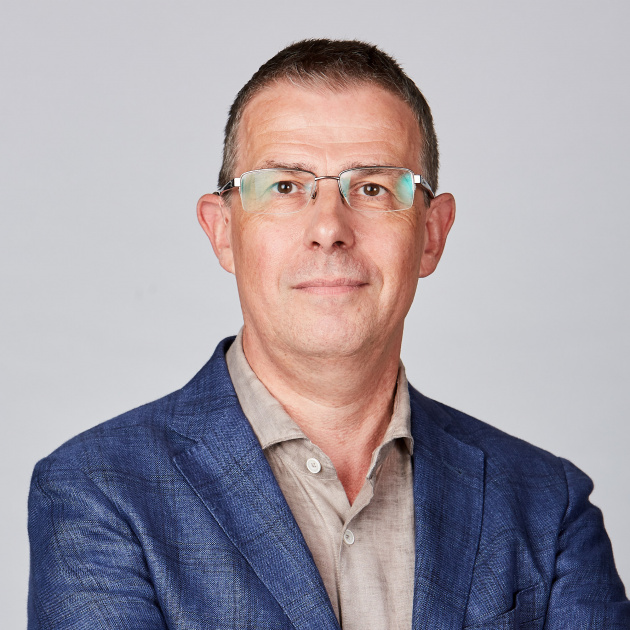
Prof. dr. Dirk VANDEN BERGHE
(e-mail: Dirk.Vanden.Berghe@vub.be; room: Pleinlaan 2, 5B423)
Research topics:
- 19th, 20th, and 21st Century Italian Literature
- Translations of Italian Literature (Reception)
- Intertextualty in Novels and Poetry
- Comparative Studies
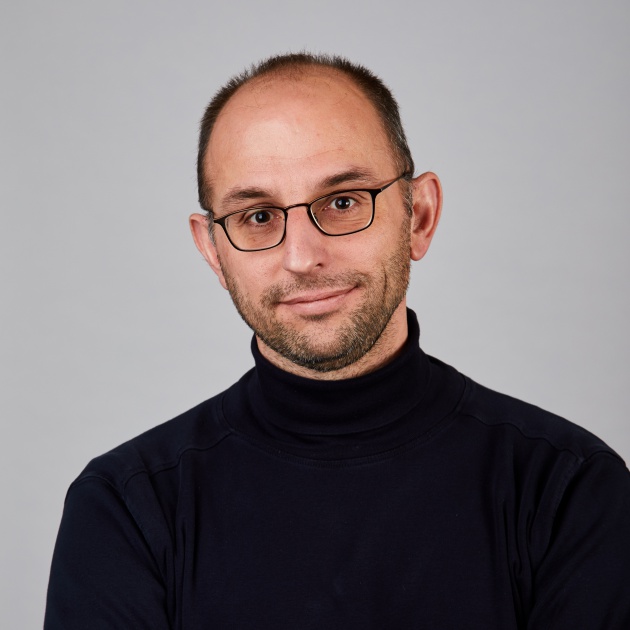
Prof. dr. Wim VANDENBUSSCHE
(e-mail: Wim.Vandenbussche@vub.be; room: Pleinlaan 2, 5B445a)
Research topics:
- Language Planning and Policy
- (Critical) Discourse Analysis
- Language Contact
- Societal Multilingualism
- Dialect Loss
- Social History of Language
- Historical Sociolinguistics
- Language Standardization
- Status of National Languages in the EU
- Status of National Languages in Higher Ed.
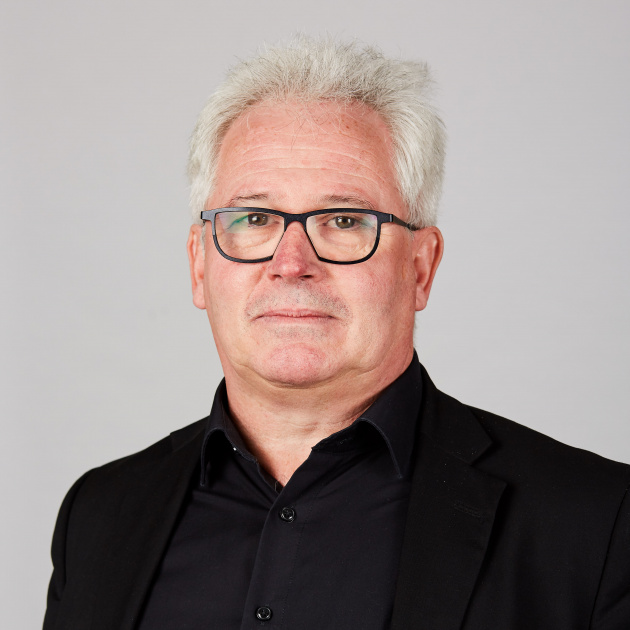
Prof. dr. Hans VANDEVOORDE
(e-mail: Hans.Vandevoorde@vub.be; room: Pleinlaan 2, 5B437a)
Research topics:
- Literature in Dutch
- Fin de siècle and Interbellum Lit. and Culture
- Post-War Poetry
- Café Culture, World Fairs, Writers Associations
- Authorship/Intentionality
- Literary Genres
- Theory of Biography
- Rhetoric of Pathos
- Intra-Belgian Comparative Studies
- Relation Between Literature and the Arts
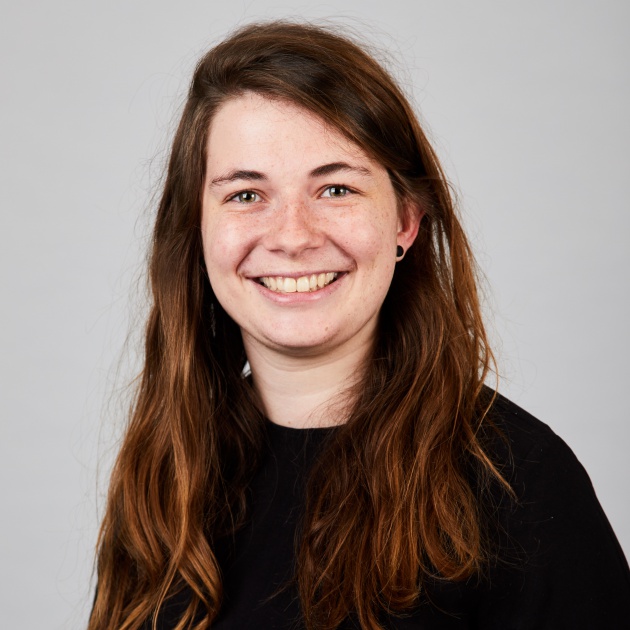
Ms. Charlotte VERHEYDEN
(e-mail: Charlotte.Verheyden@vub.be; room: Pleinlaan 2, 5B453)
Research topics:
- Historical Sociolinguistics
- Influence of French on the Dutch Language in the 18th Century
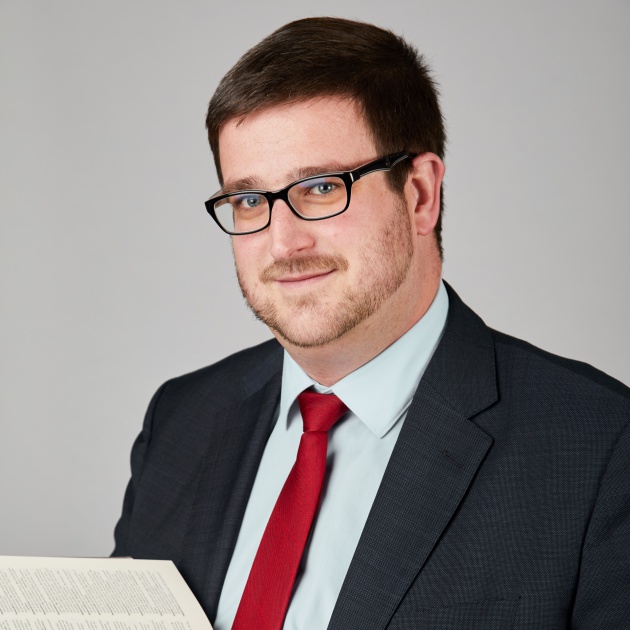
Prof. dr. Rik VOSTERS
(e-mail: Rik.Vosters@vub.be; room: Pleinlaan 2, 5B445)
Research topics:
- Historical sociolinguistics
- Dutch language history
- Sociolinguistics
- Language policy and language planning
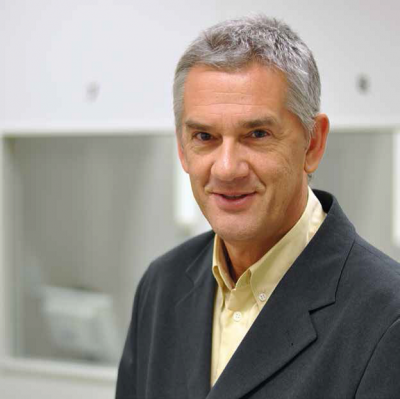
Prof. dr. Jean-Paul WALRAEVENS
(e-mail: Jean-Paul.Walraevens@vub.be; room: Pleinlaan 2, 5B447)
Research topics:
- Translation and Interpreting Studies
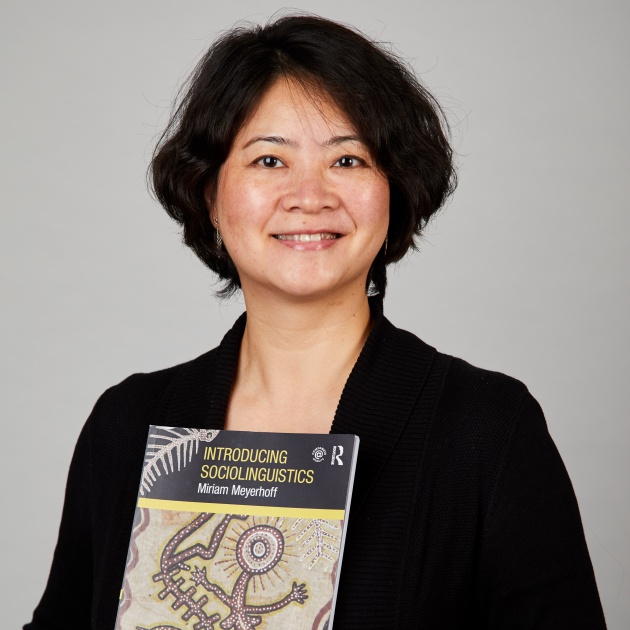
Dr. Jianwei XU
(e-mail: Jianwei.Xu@vub.be; room: Pleinlaan 5, 320)
Research topics:
- Socio-psychological and Socio-cultural Factors (e.g. Motivation, Attitudes, Personality, Investment, Agency and Identity) in Second Language Learning
- Cross-cultural Adjustment Issues and Intercultural Communication
- Issues in Teaching English as an International Language
Testimonials
Not sure yet which Master's programme to apply for? Multilingual Master alumna Terese might be able to help you out.
How did international students experience their time at VUB?
Listen for yourself and find out!

Students speak
"Classes cover a wide range of subjects that allow each and every student to interact with the covered materials from a personal point of view. The multitude of students' background makes the courses all the more interesting." - Luna Klaps (Literary Studies)
"Studying linguistics at VUB meant everything to me because the university offers an academic programme for people with so many educational backgrounds. I will remember the professors most of all. I had a very tough beginning here, and without the help from professors, I would never have made it." - Minh Nghia Nguyen (Linguistics)
“VUB was the only university that offered me a glimmer of hope that I could complete the study I’d begun in Syria. […] On my first day, a classmate asked for my email address so they could send me their lecture notes. Believe me, that sort of thing will stay with me my whole life.” - Khaola Al Rifai (Linguistics)
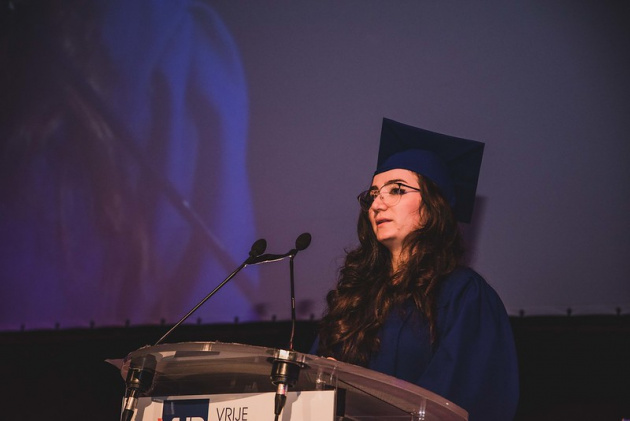
"To my dear professors, supervisors, members of staff and alumni of the VUB: my gratitude towards you is unspeakable. I can look across the auditorium and see many faces who have had the biggest impact on me. You who made the VUB vision of humanism a daily practice, with your open-minded attitude and kindness. " - Khaola Al Rifai
Past Events
---
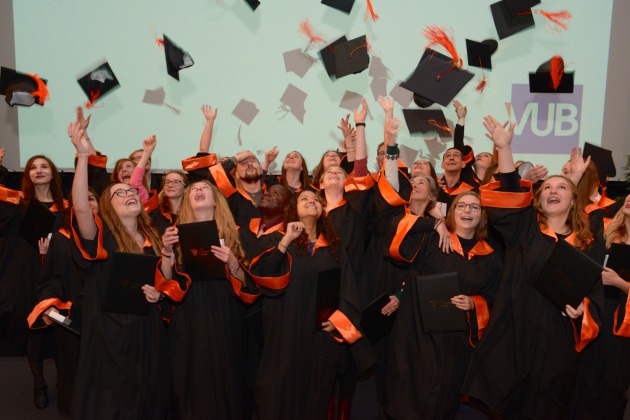
Dec. 2016 - Graduation Ceremony
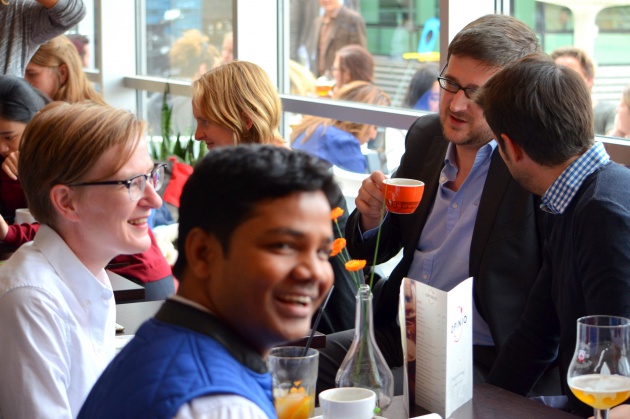
Sept. 2017 - Multilingual Master Welcome Session
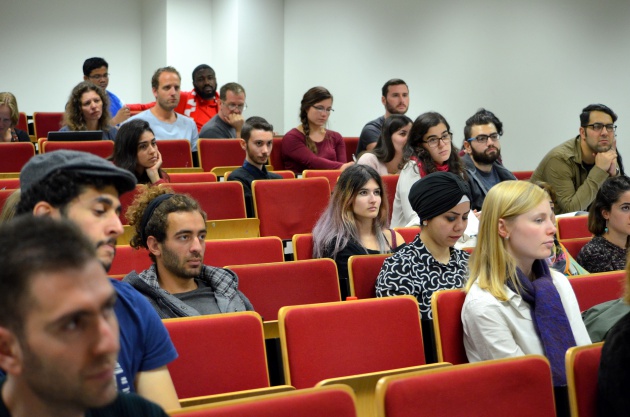
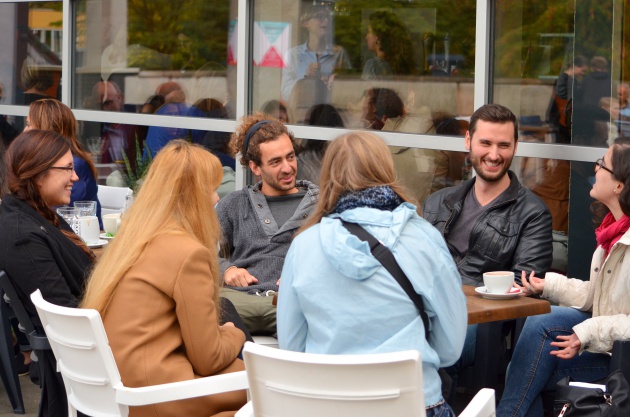
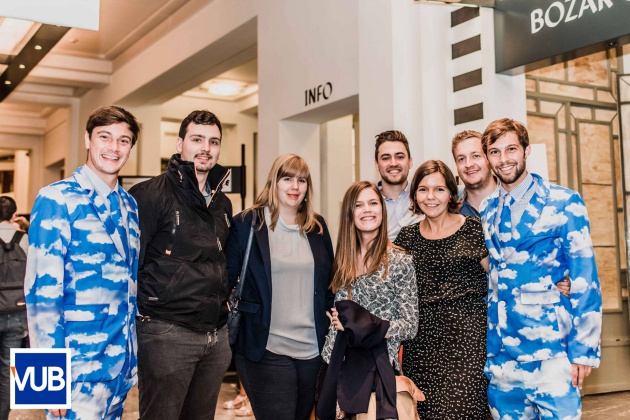
Sept. 2017 - Academic Opening

Dec. 2017 - Graduation Ceremony
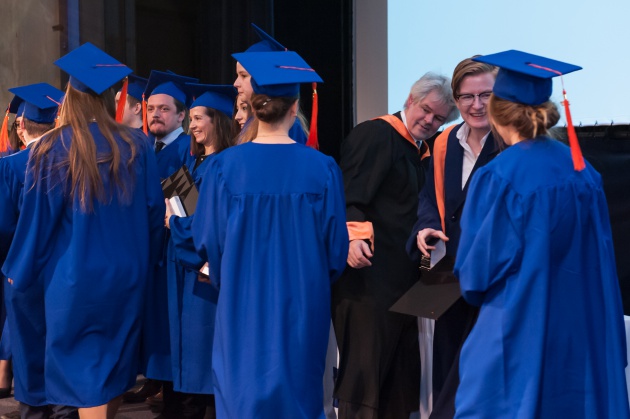
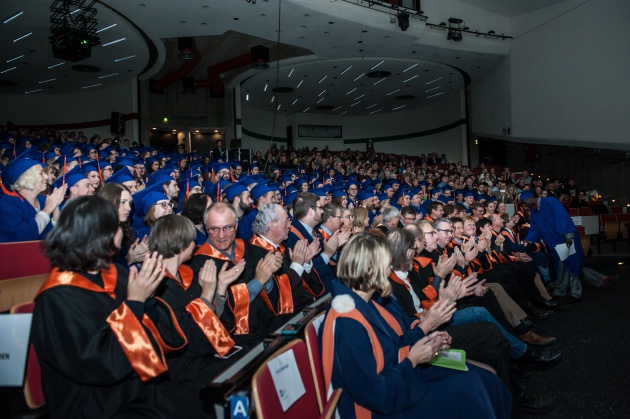
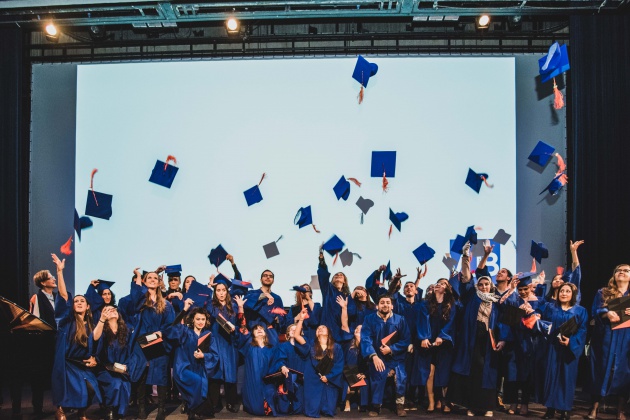
Dec. 2018 - Graduation Ceremony
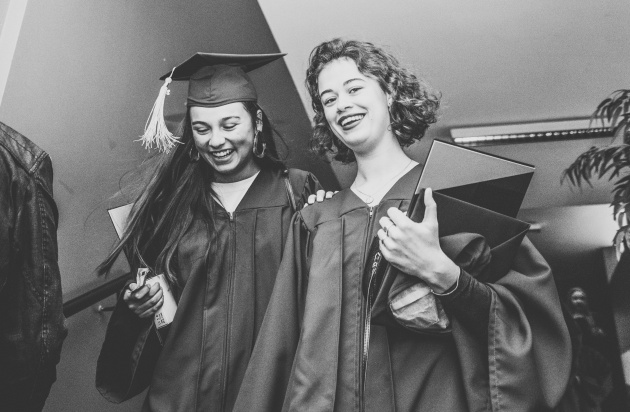
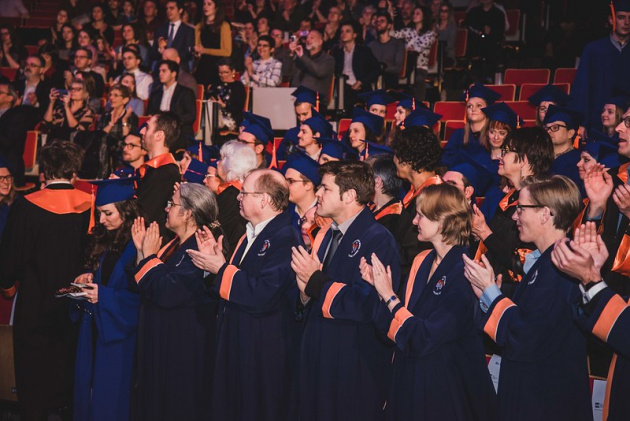

Dec. 2019 - Graduation Ceremony
